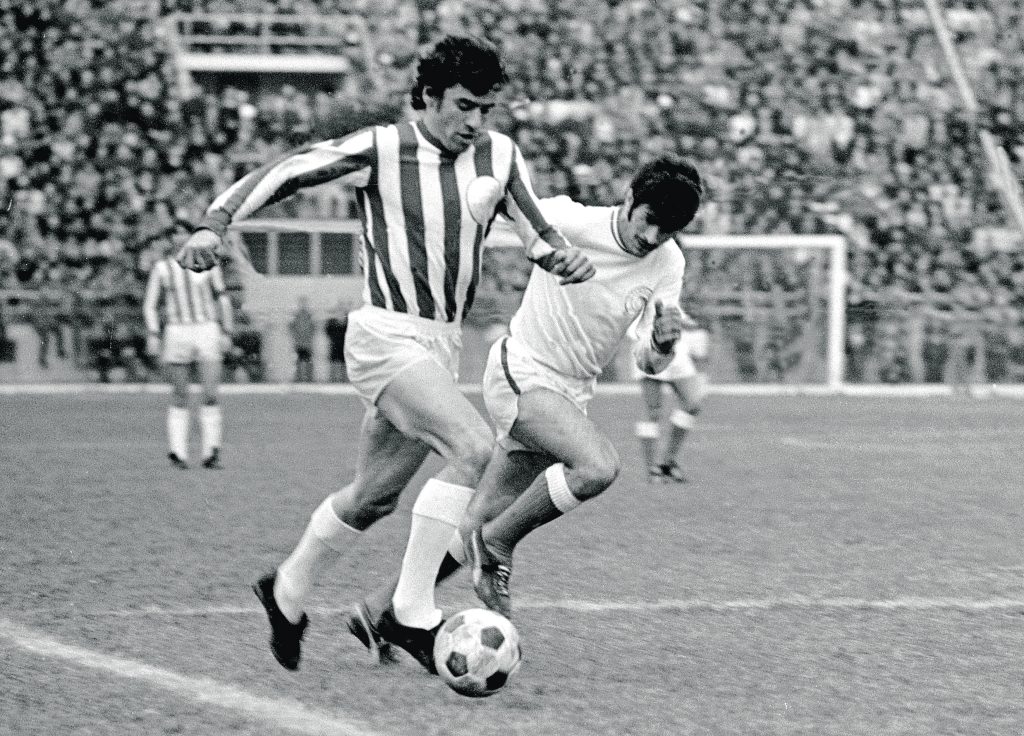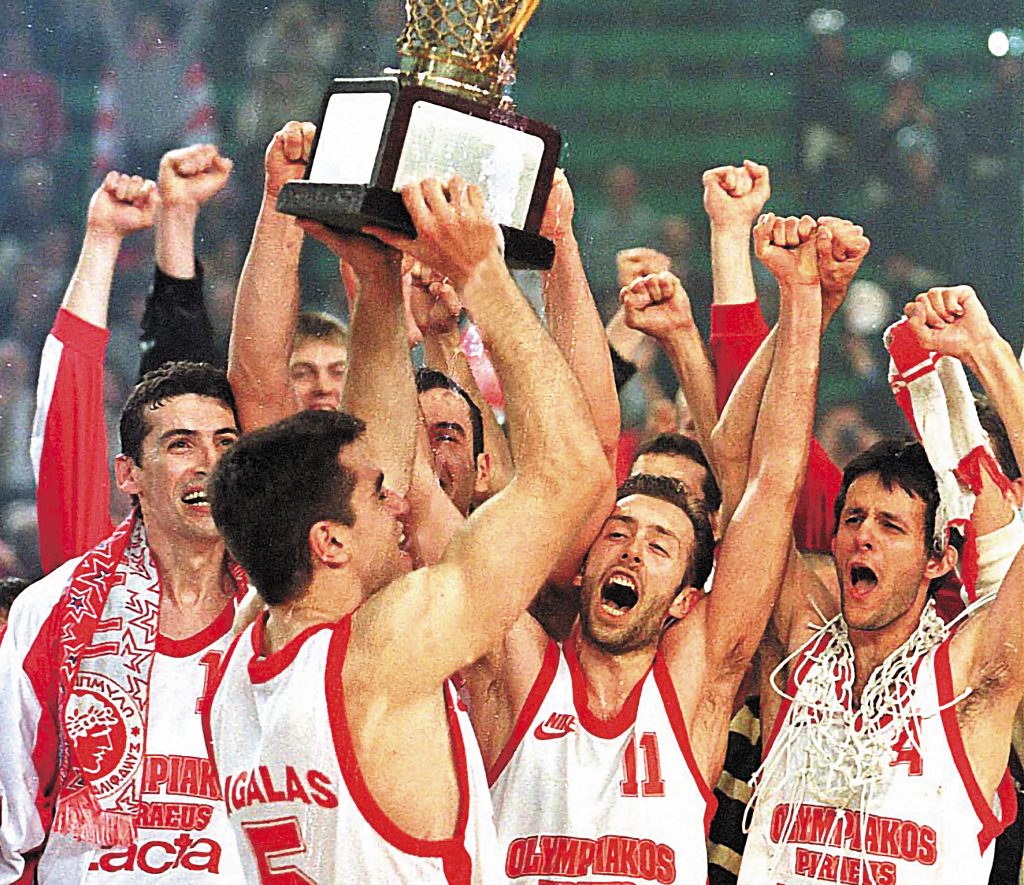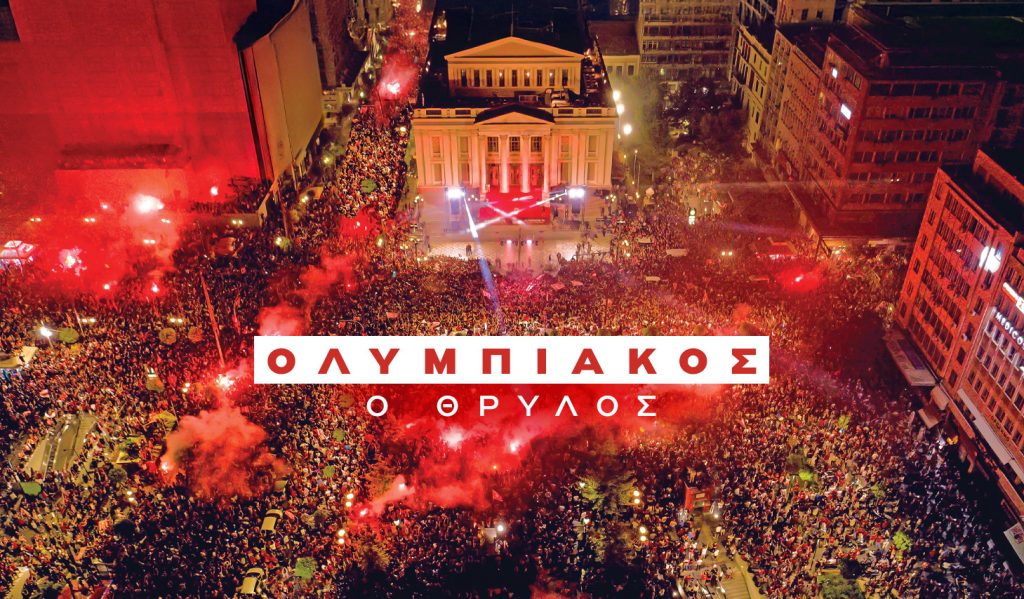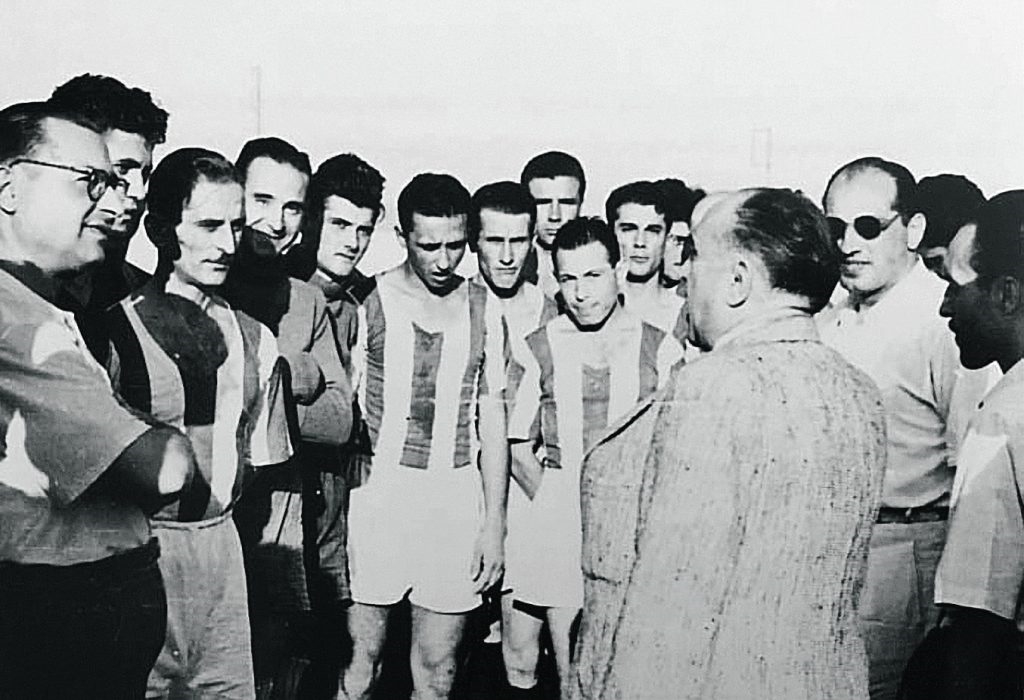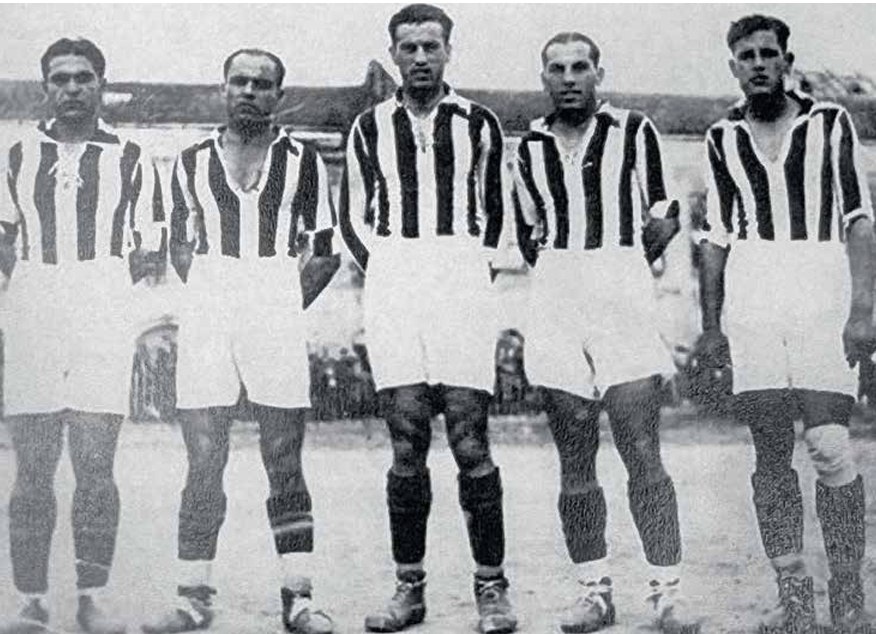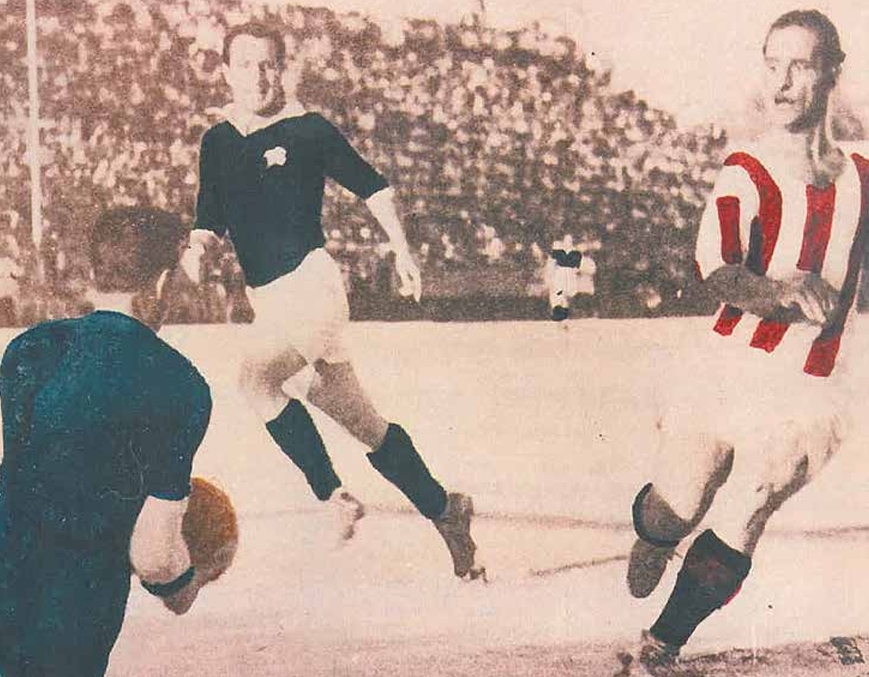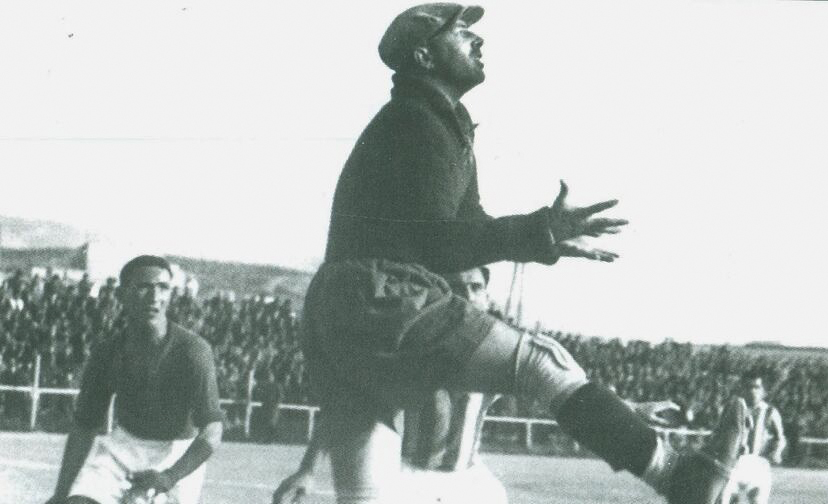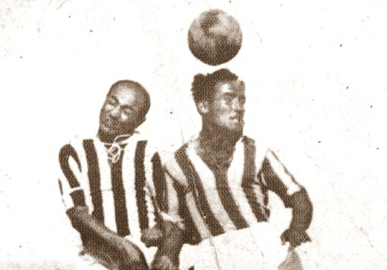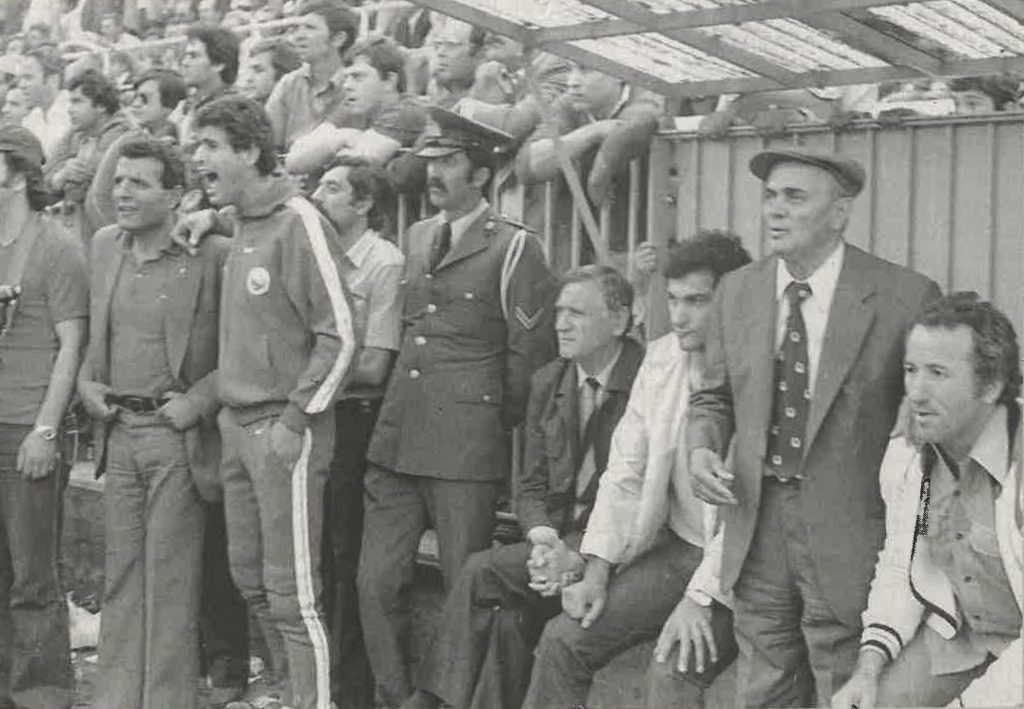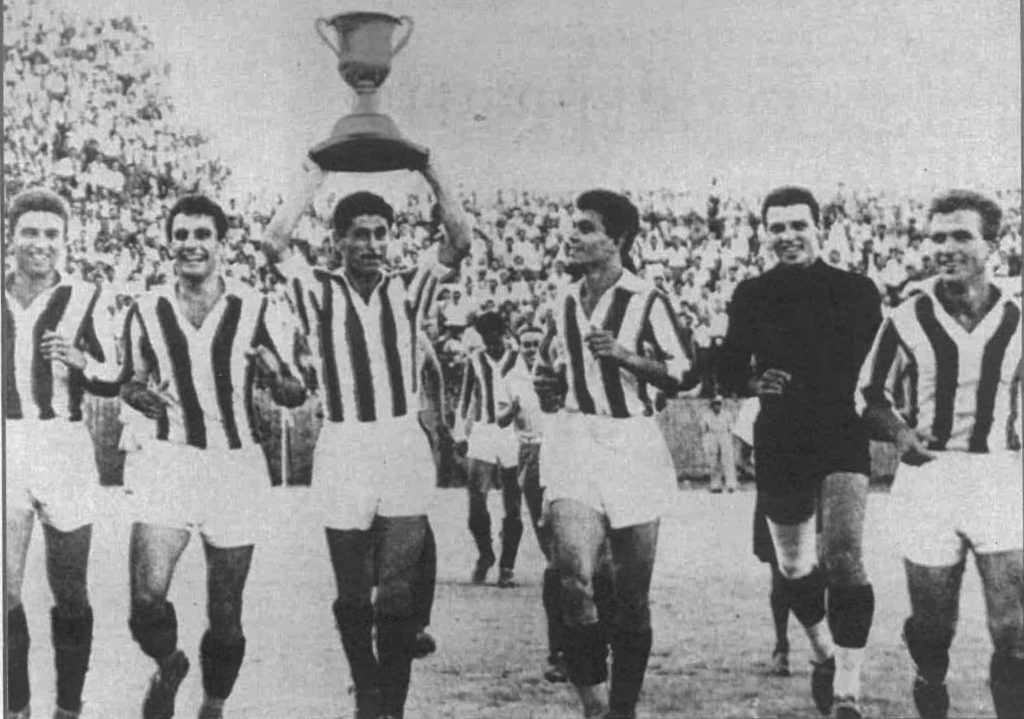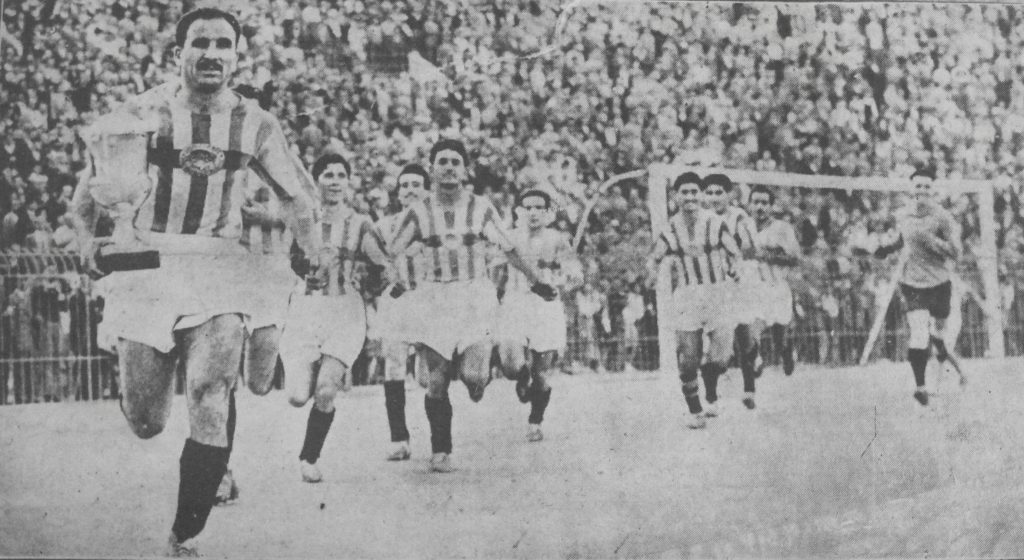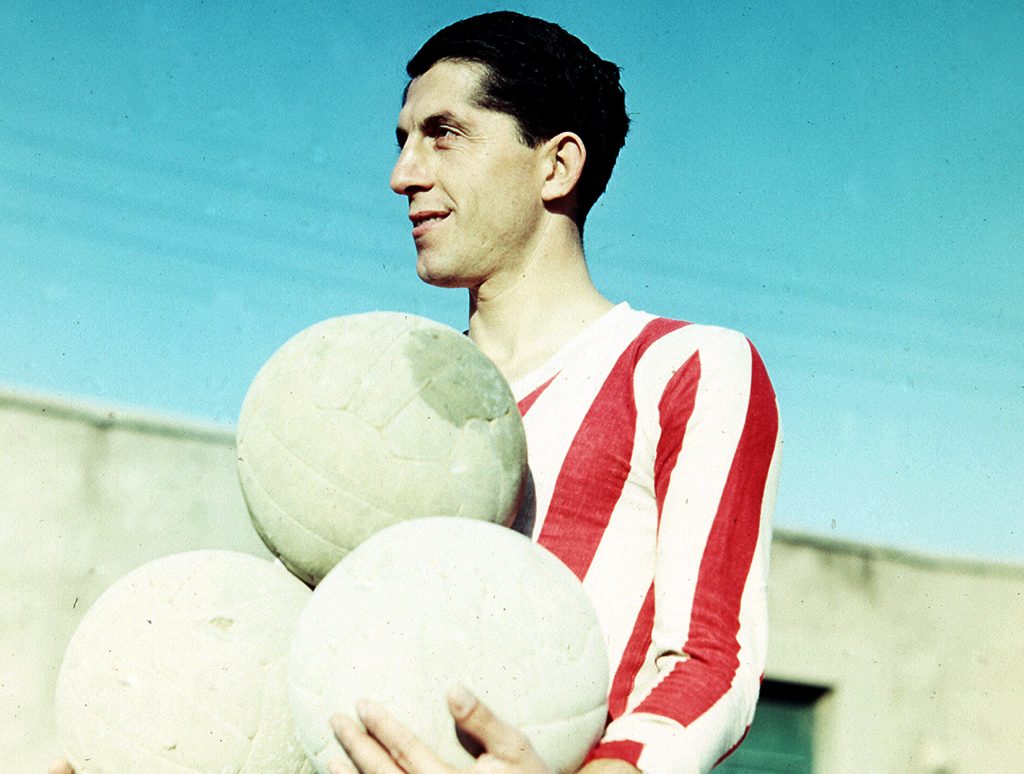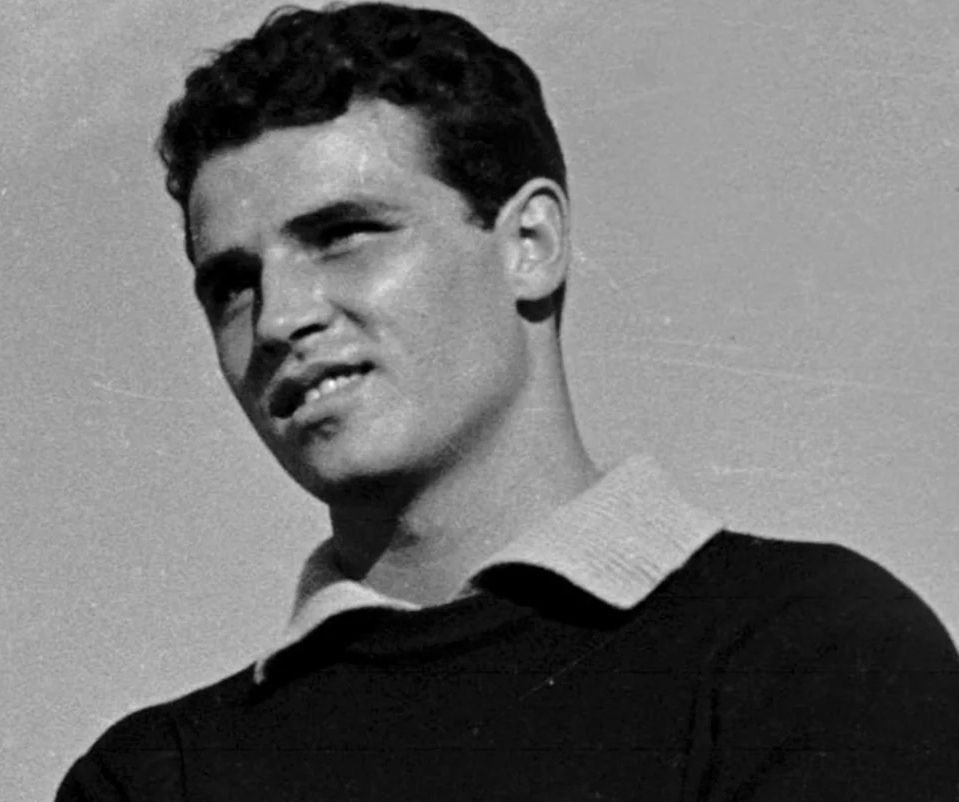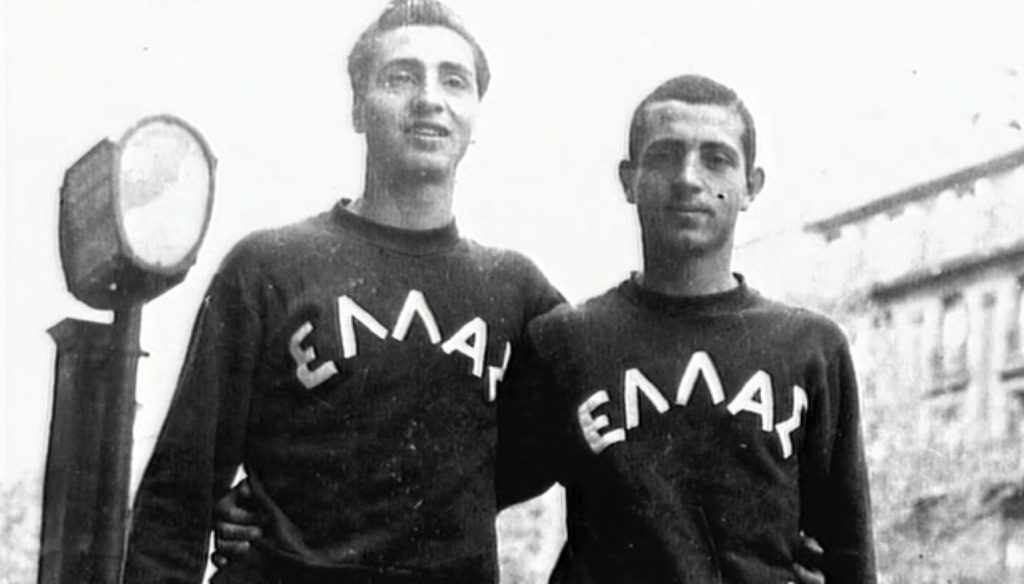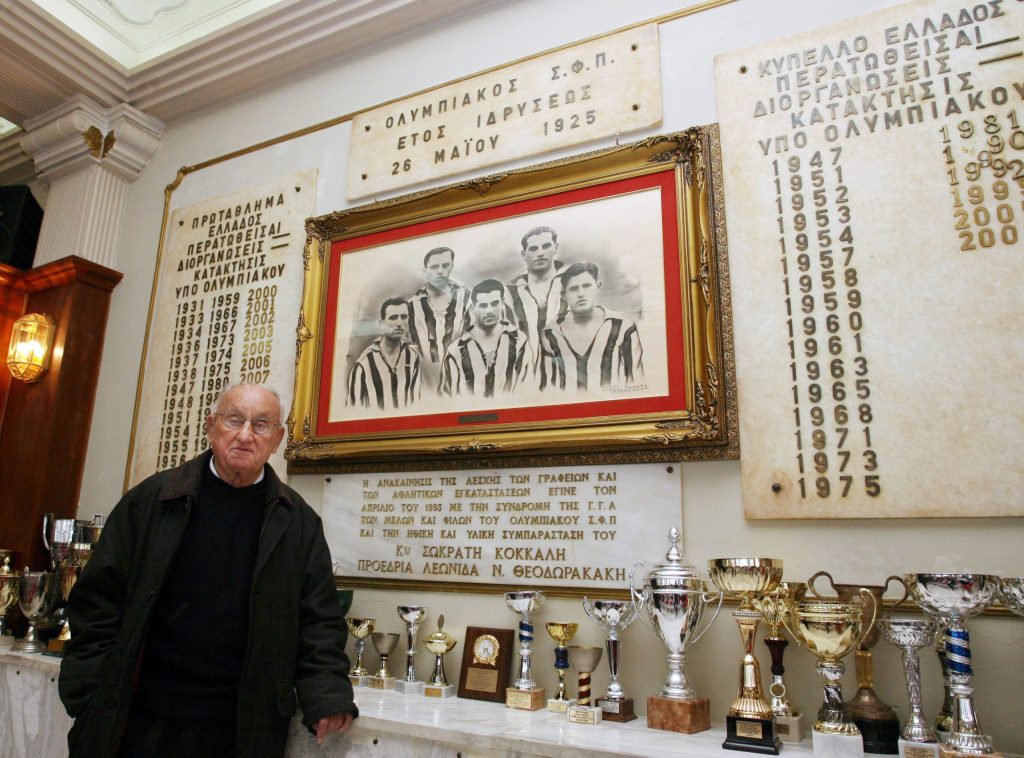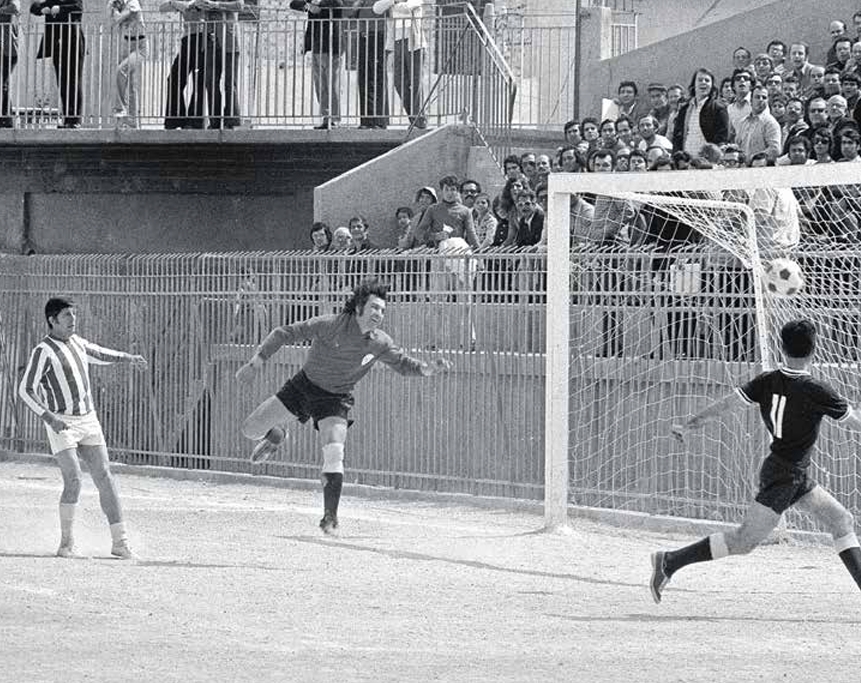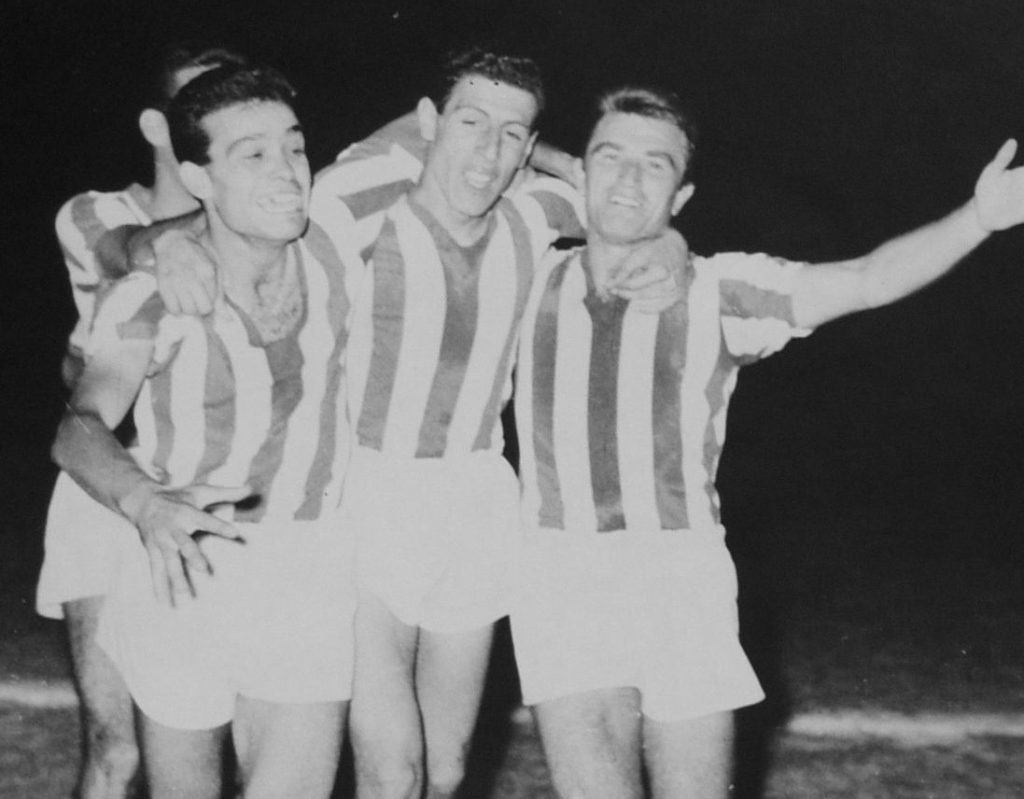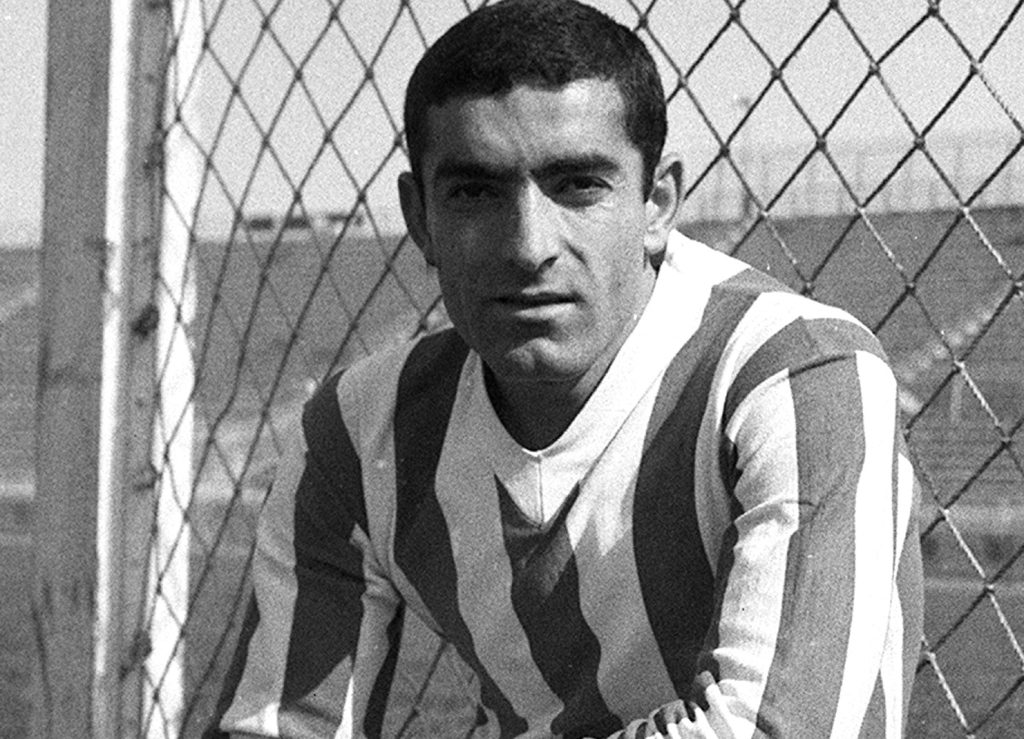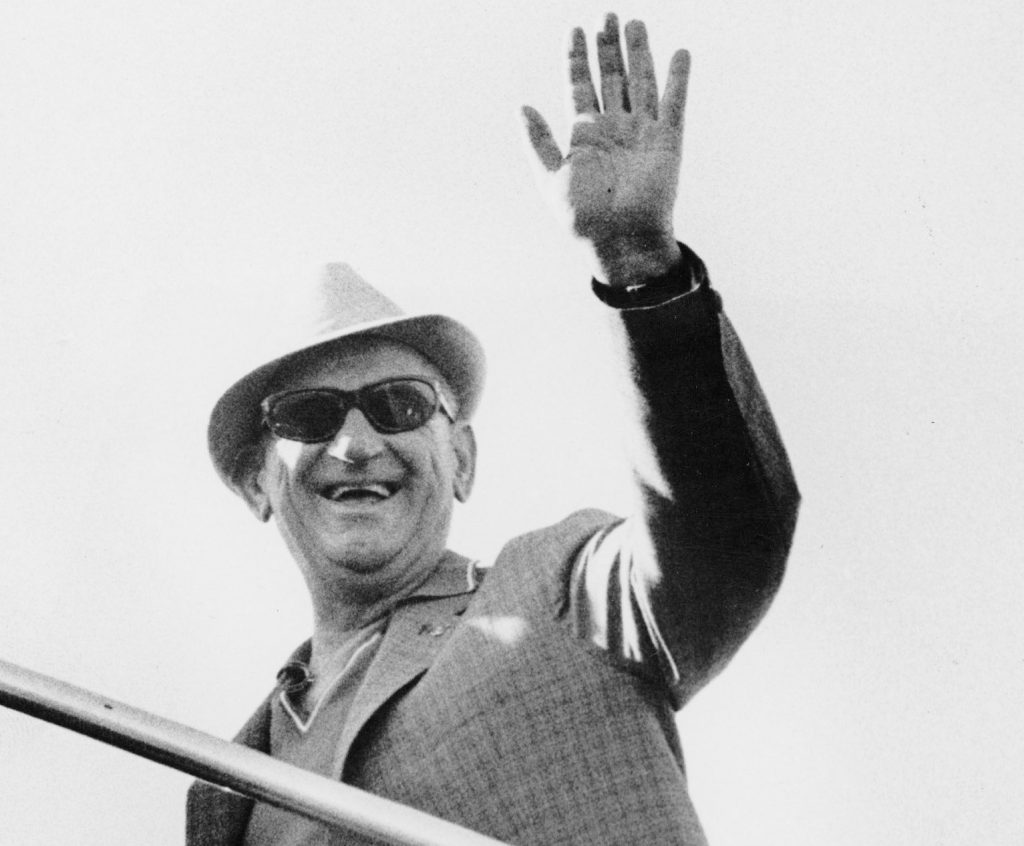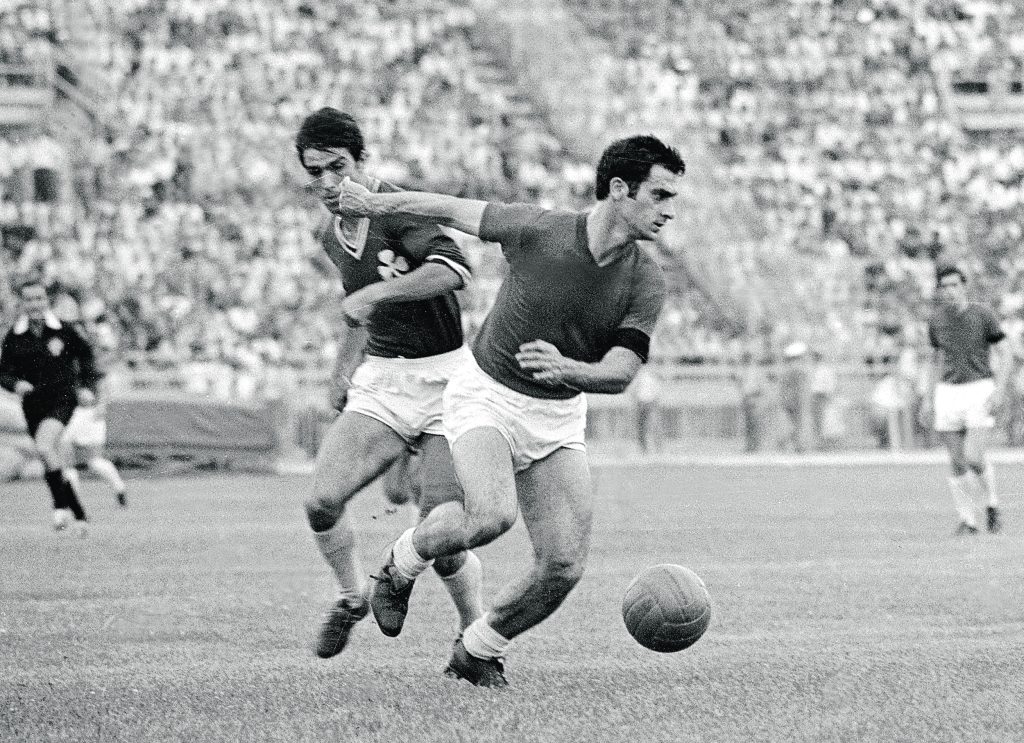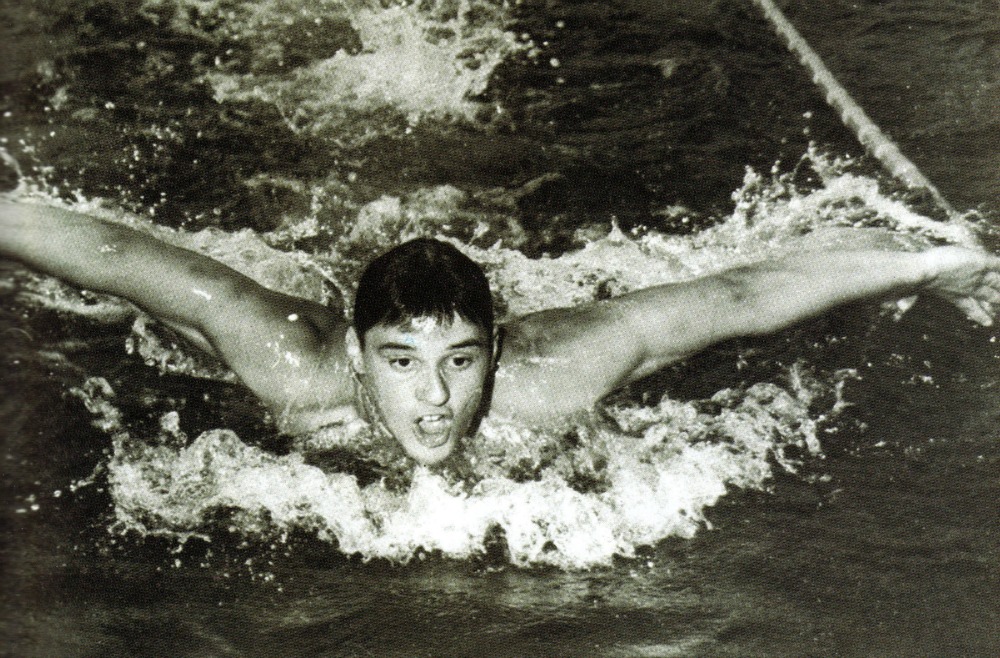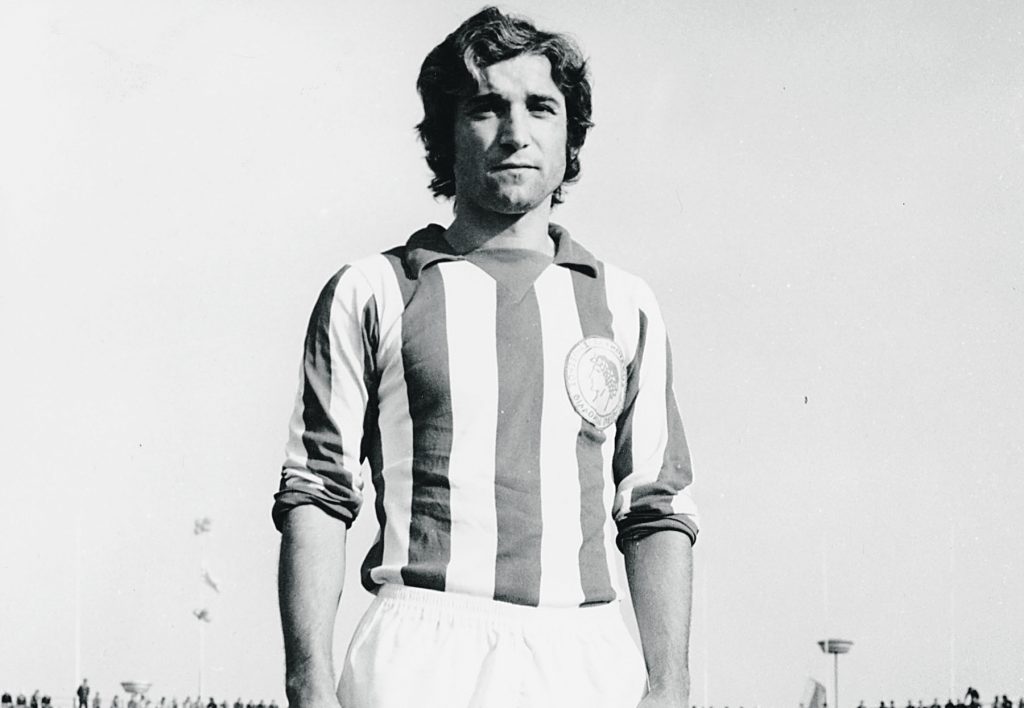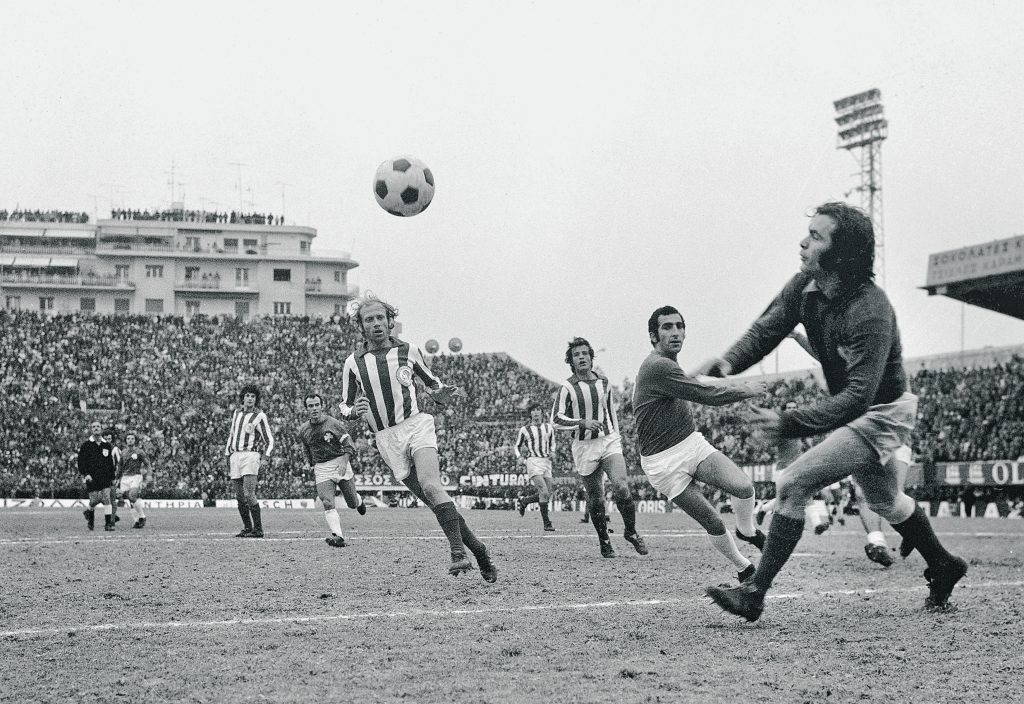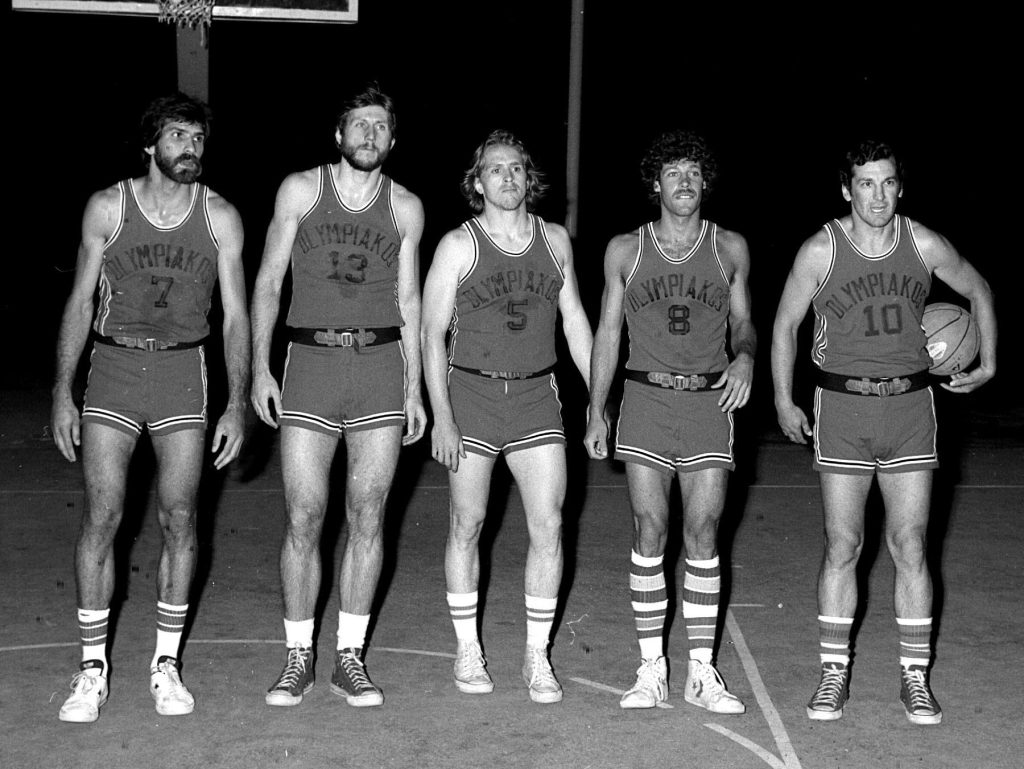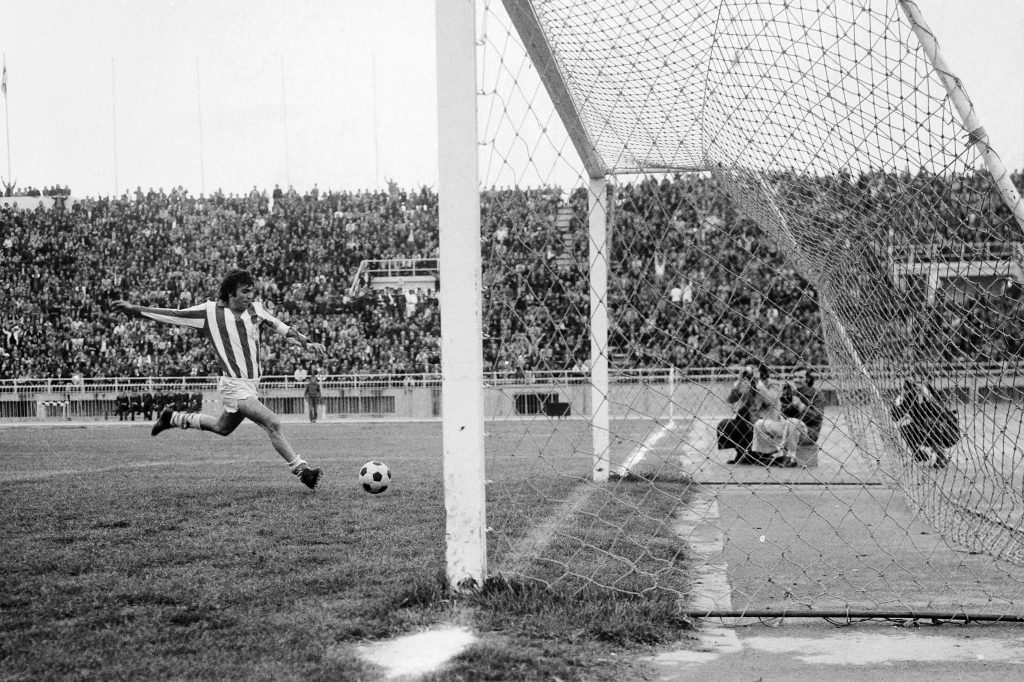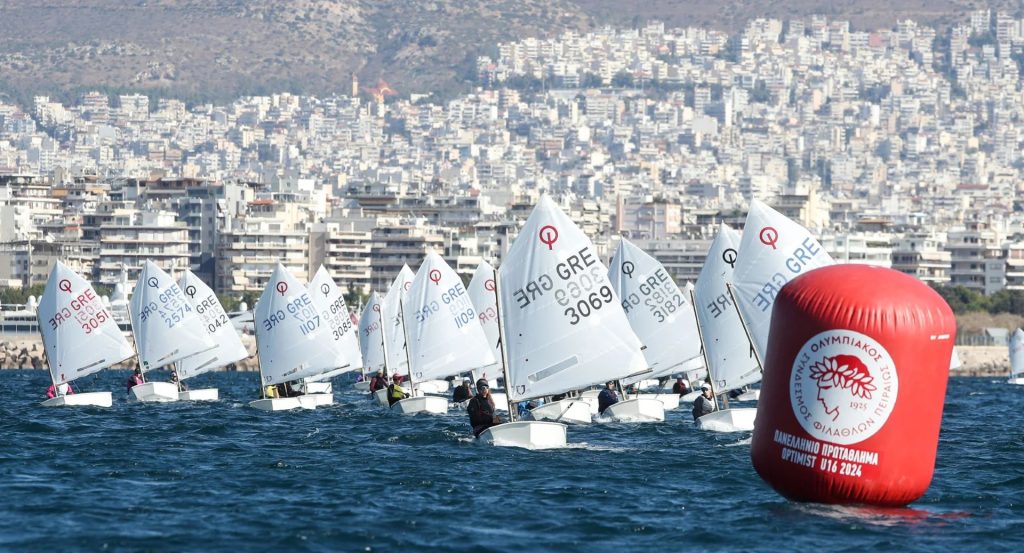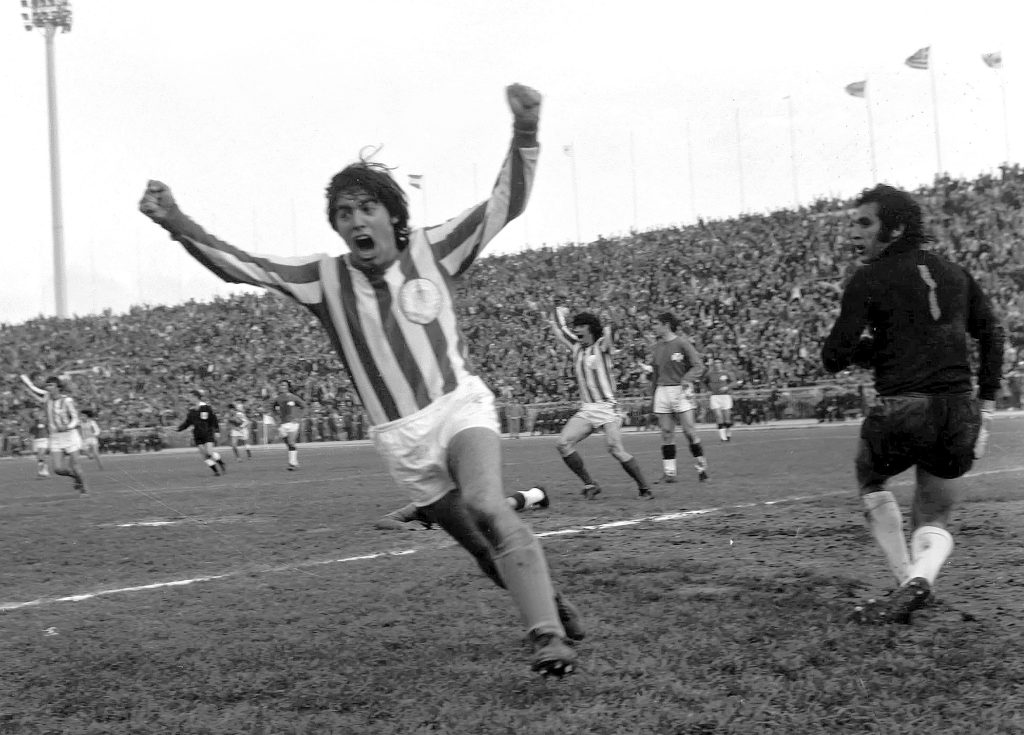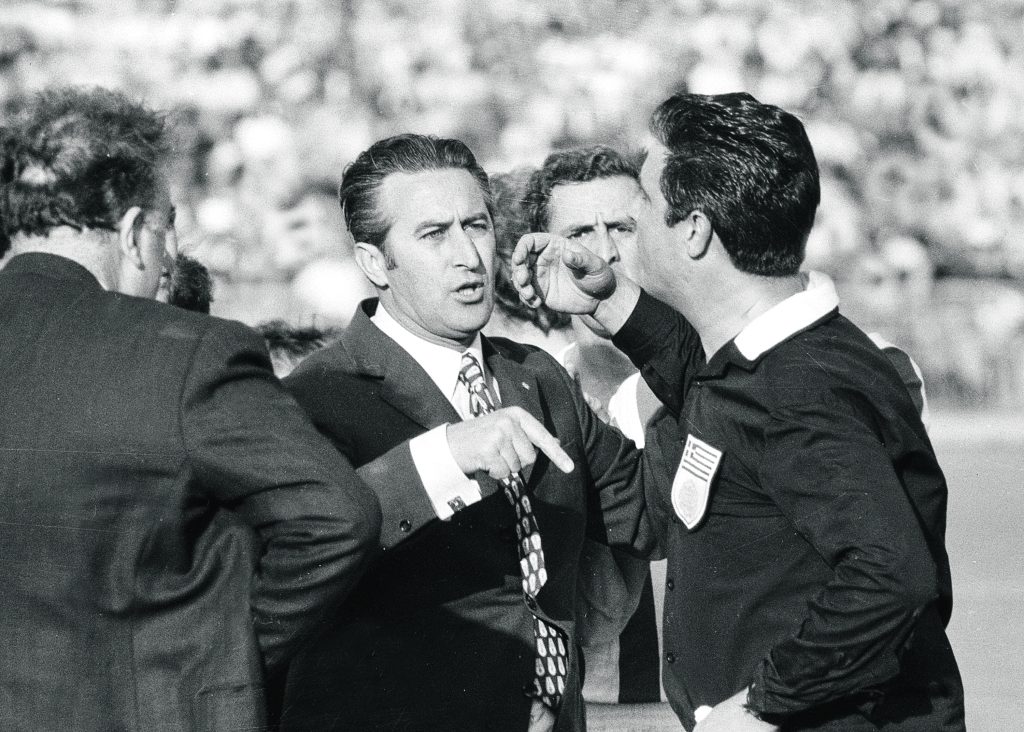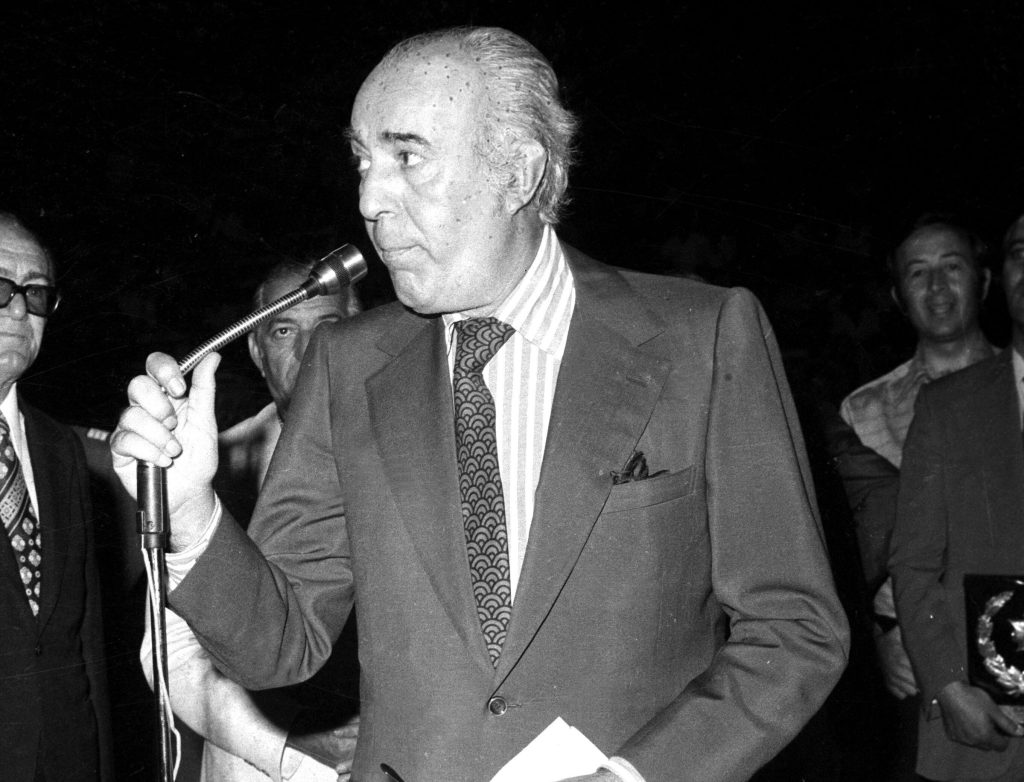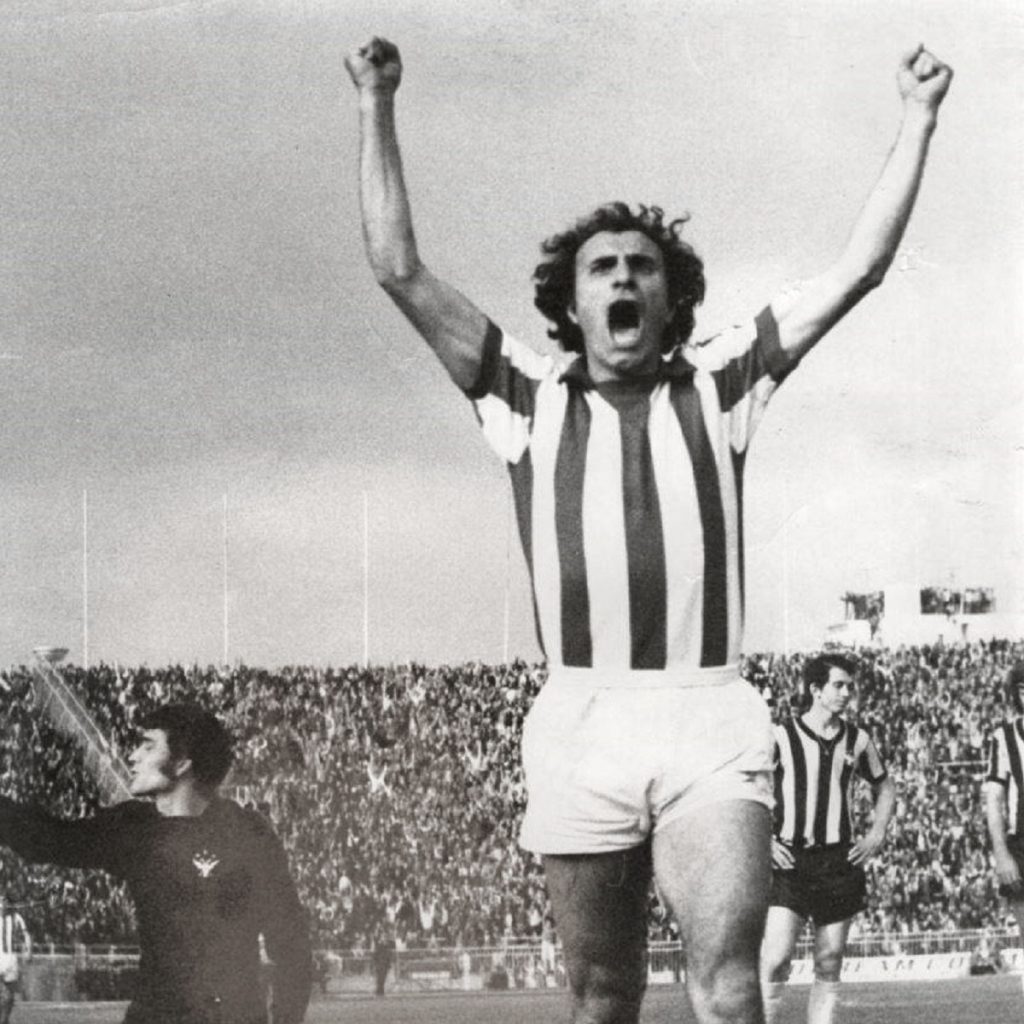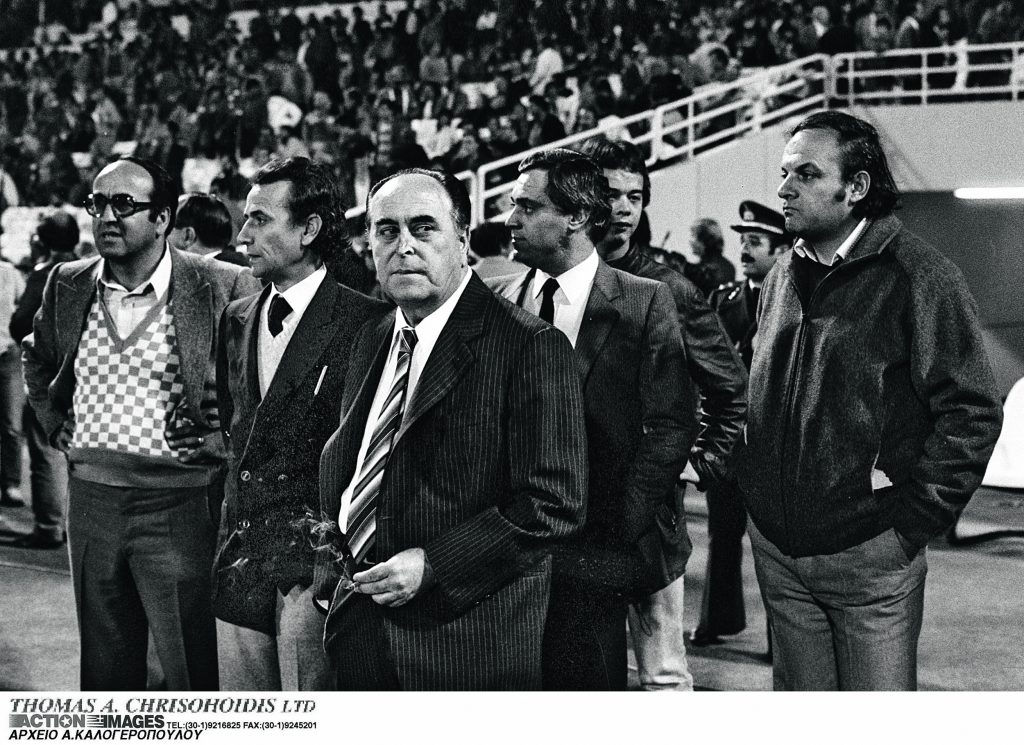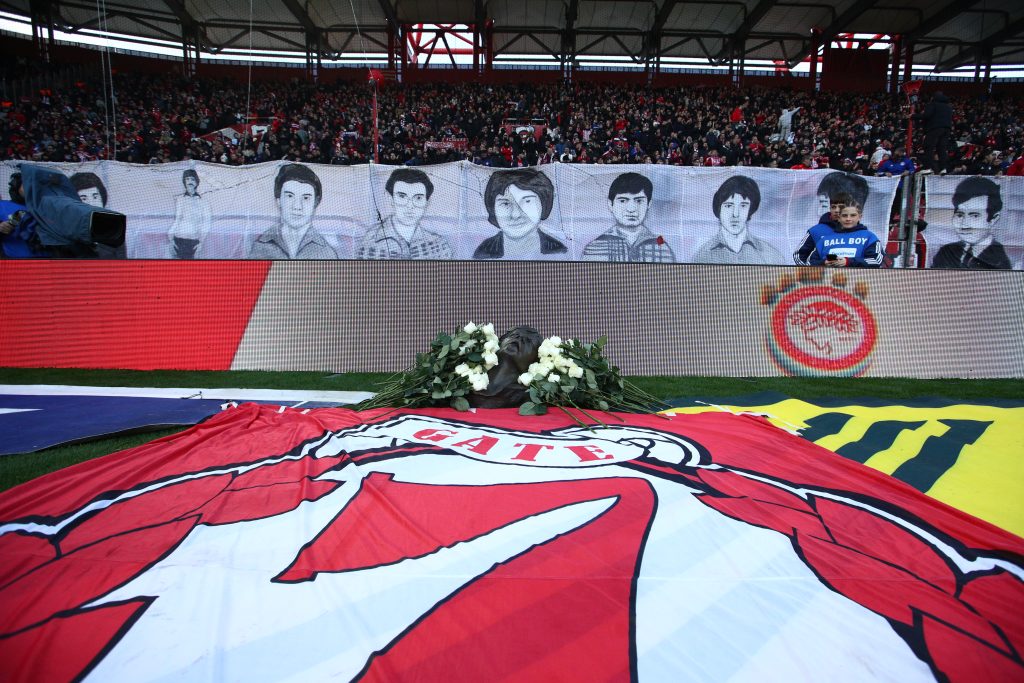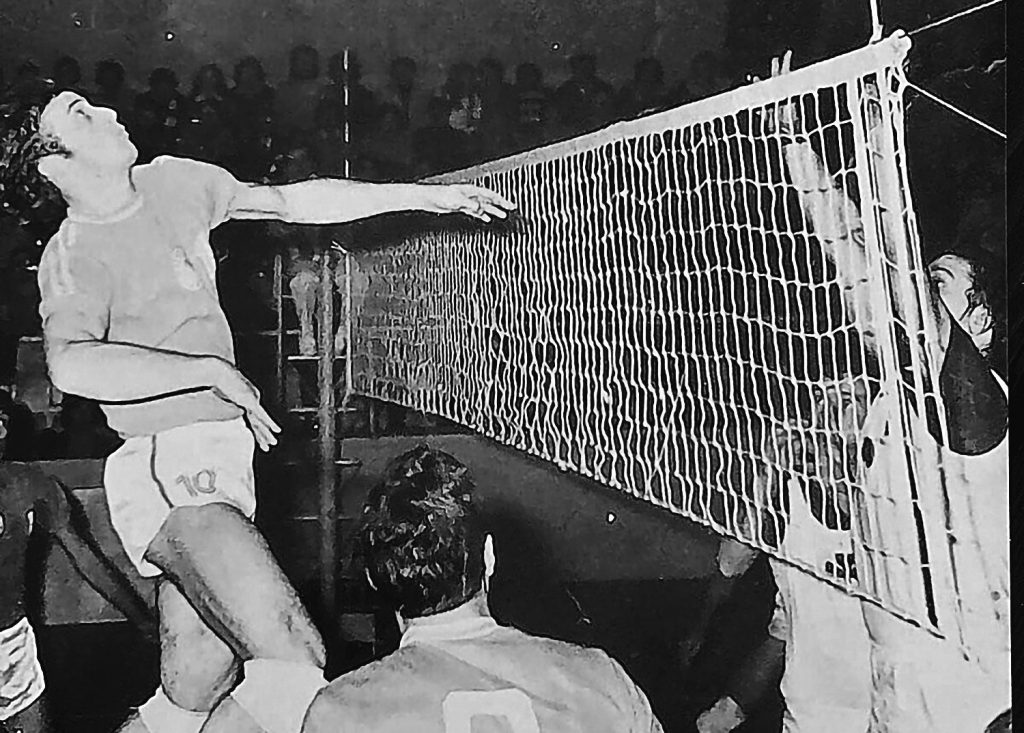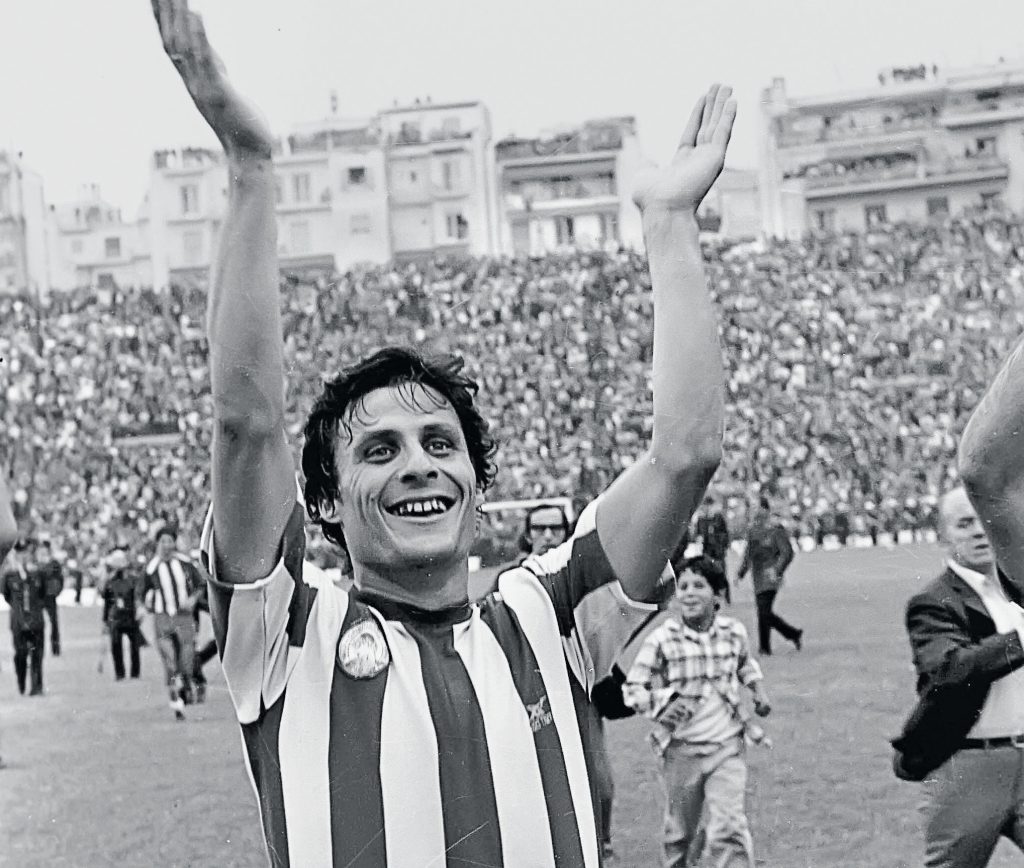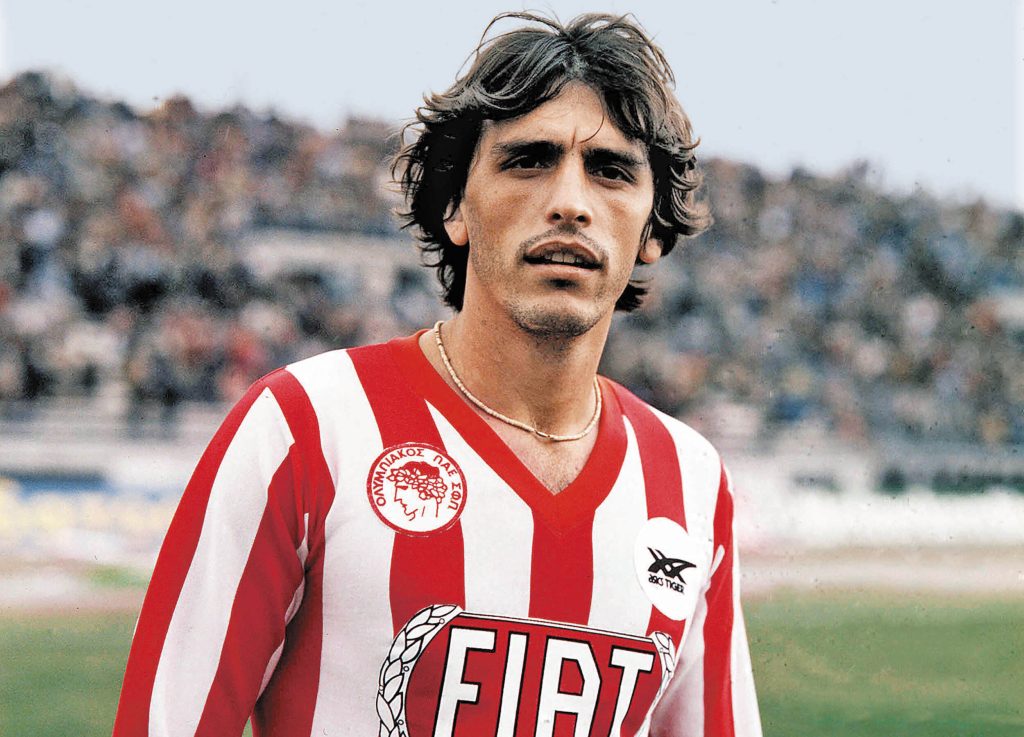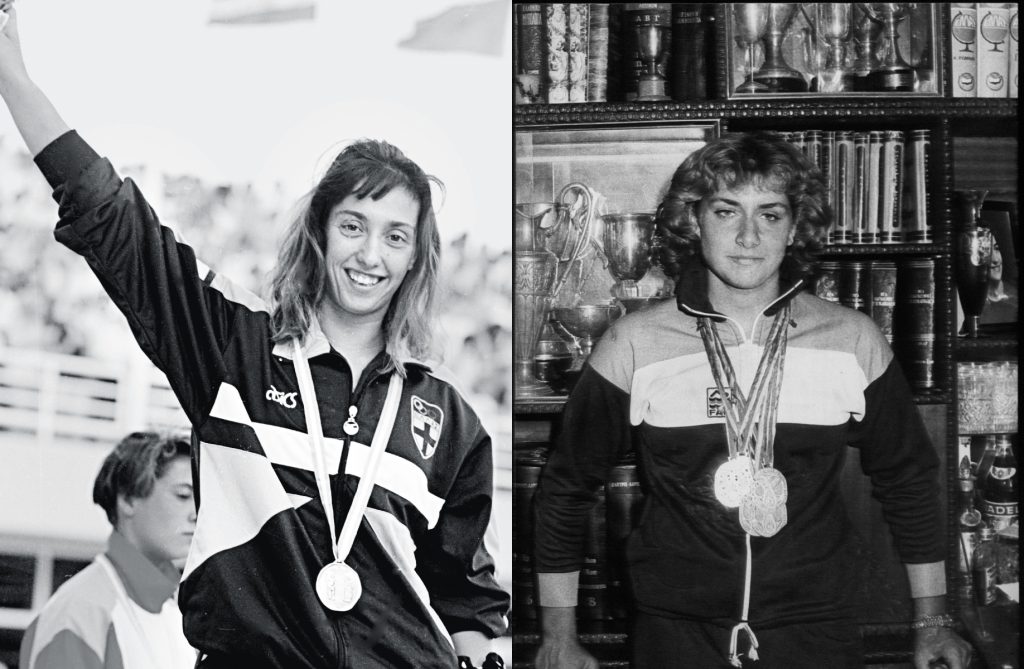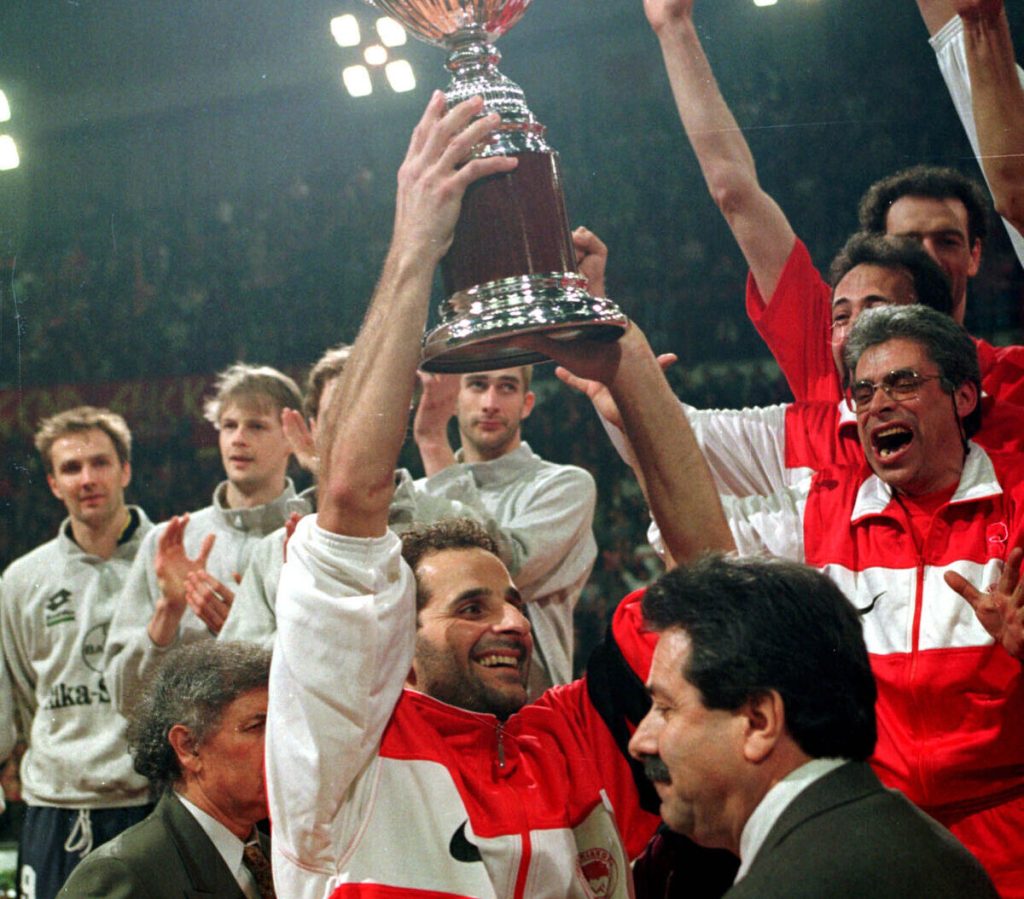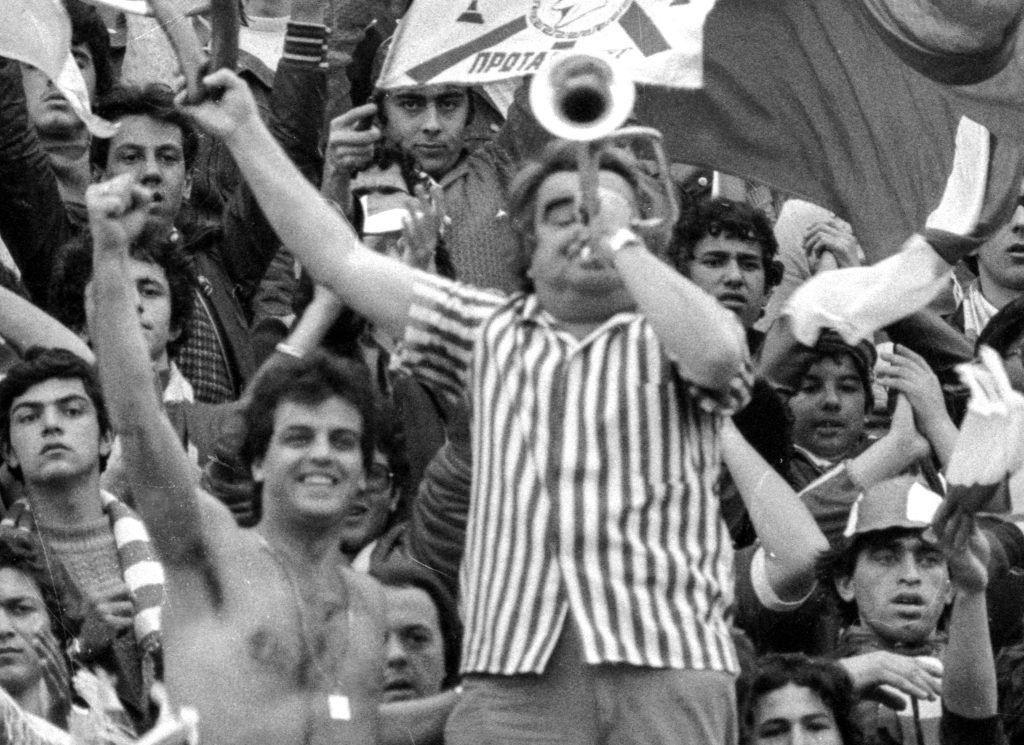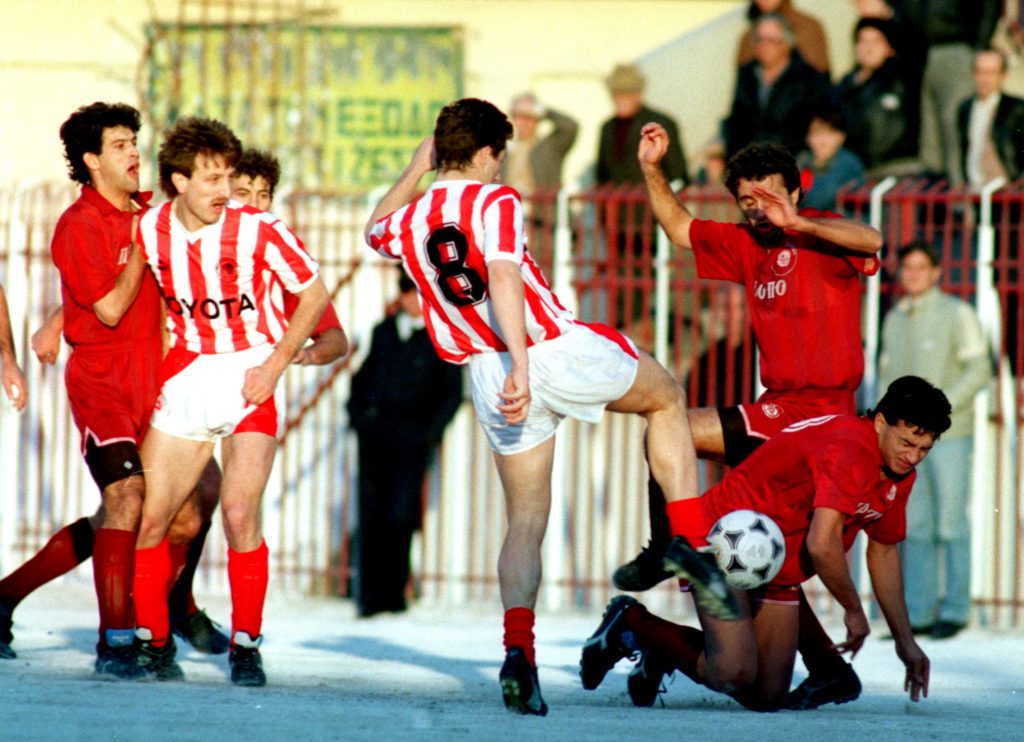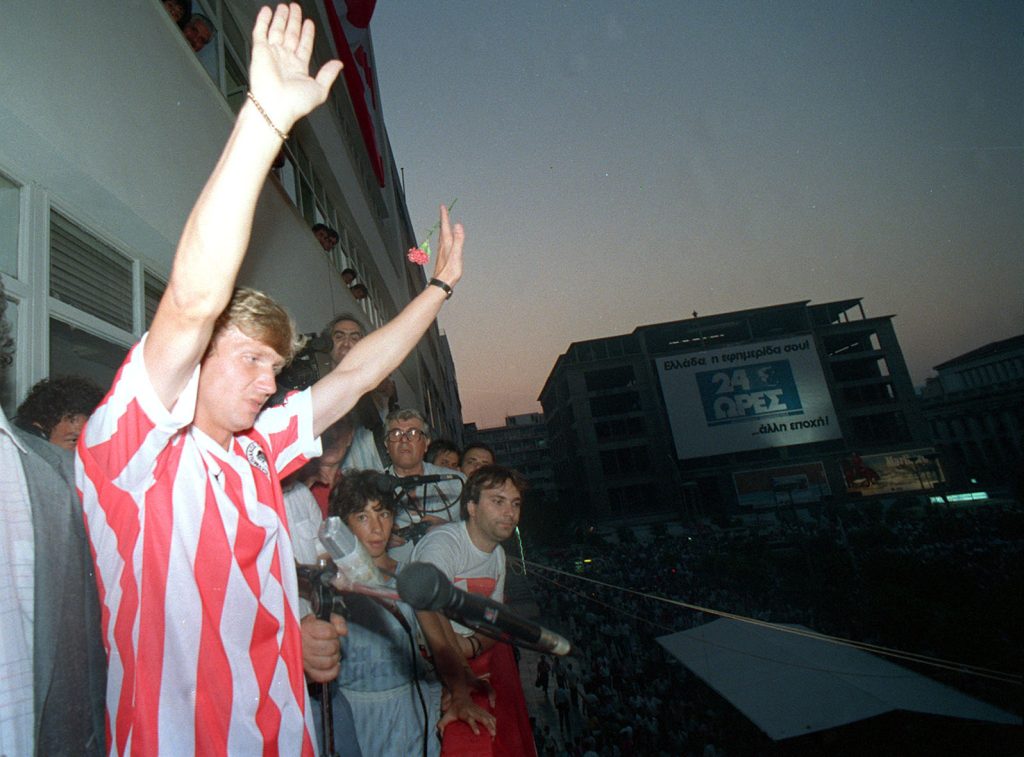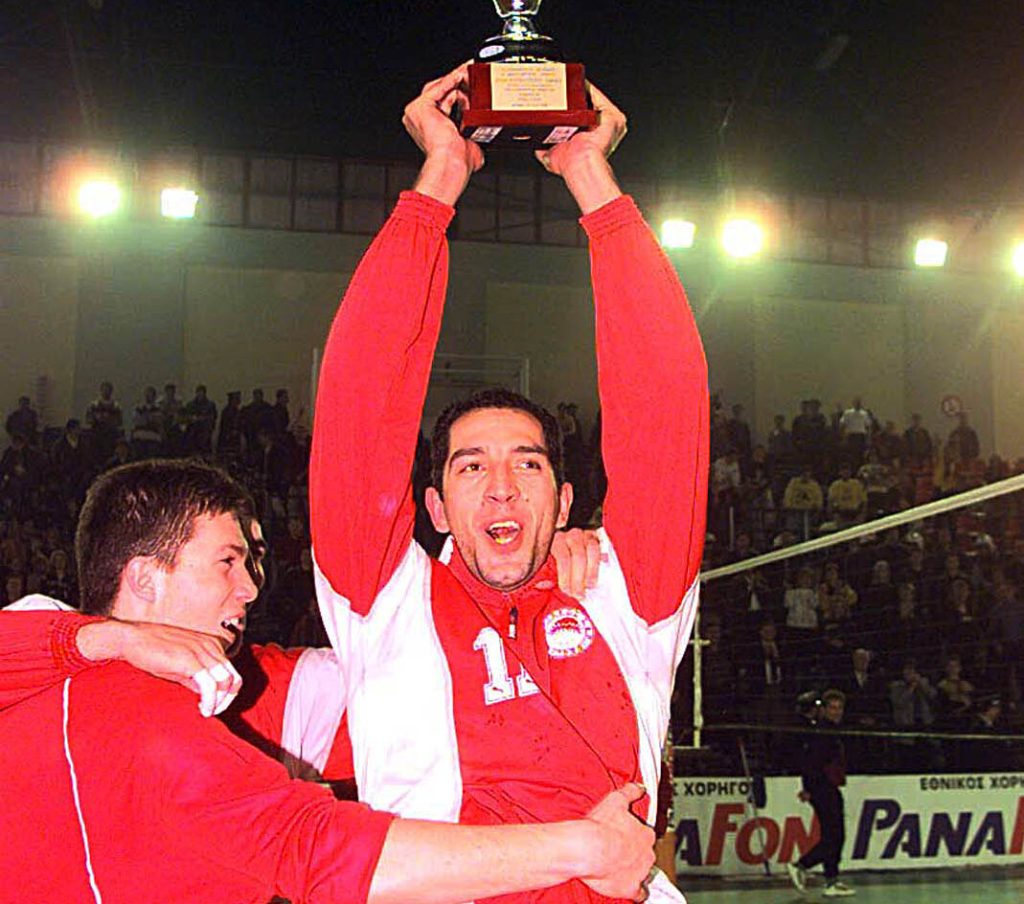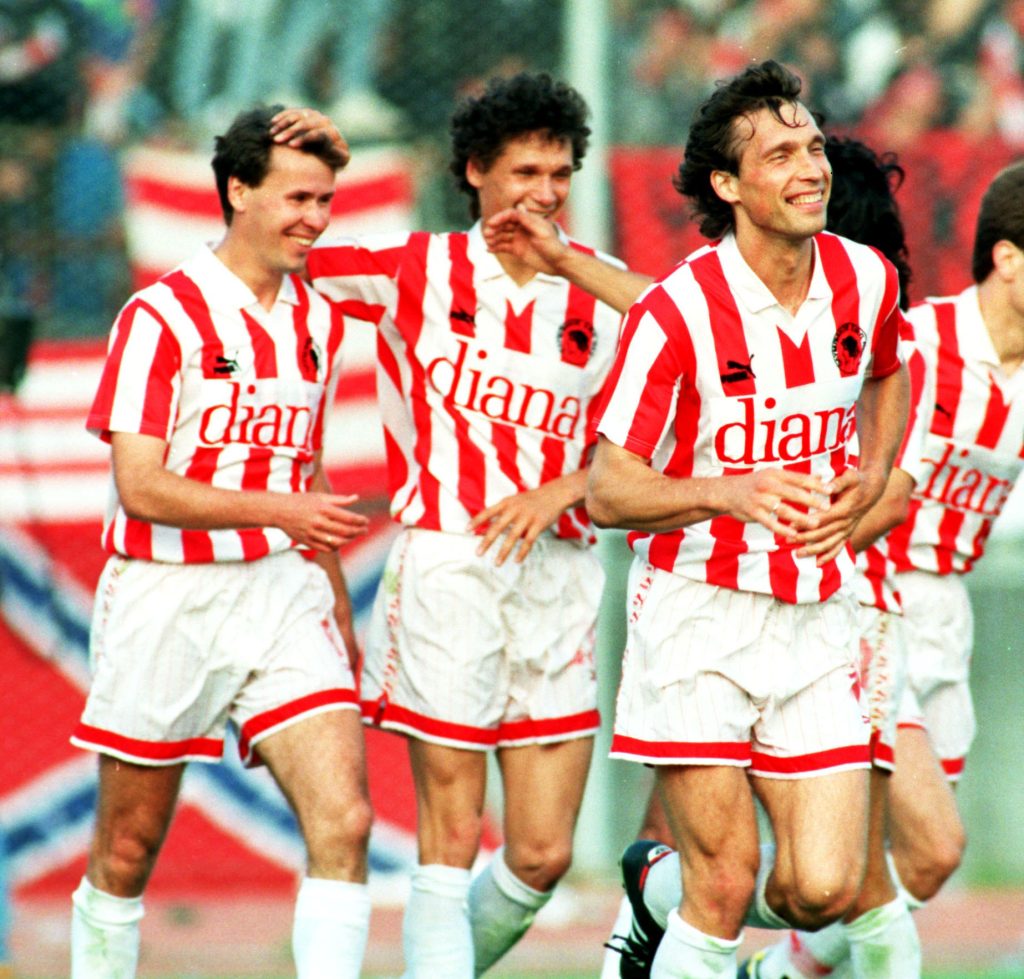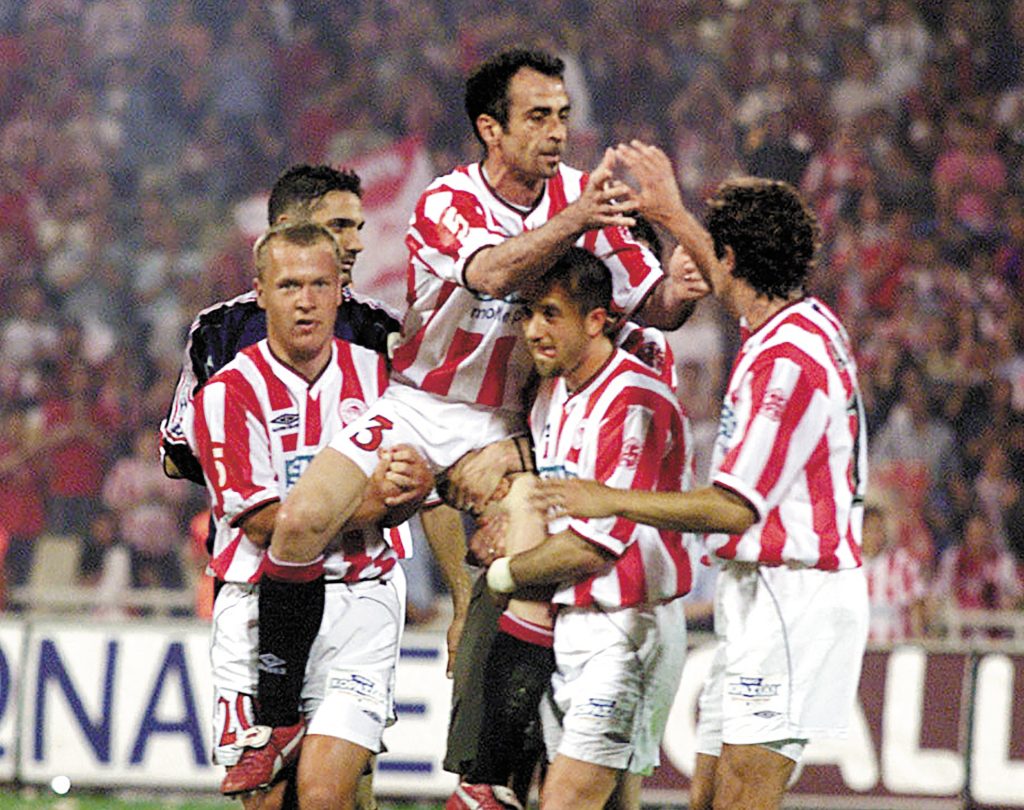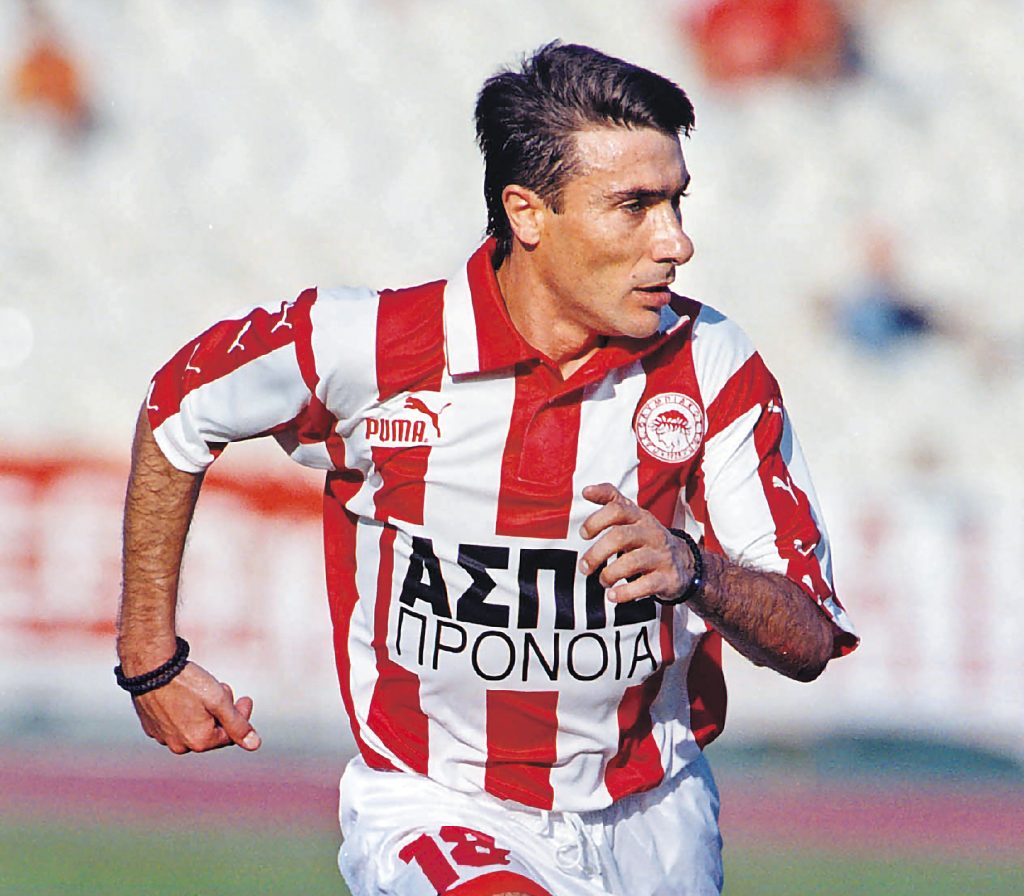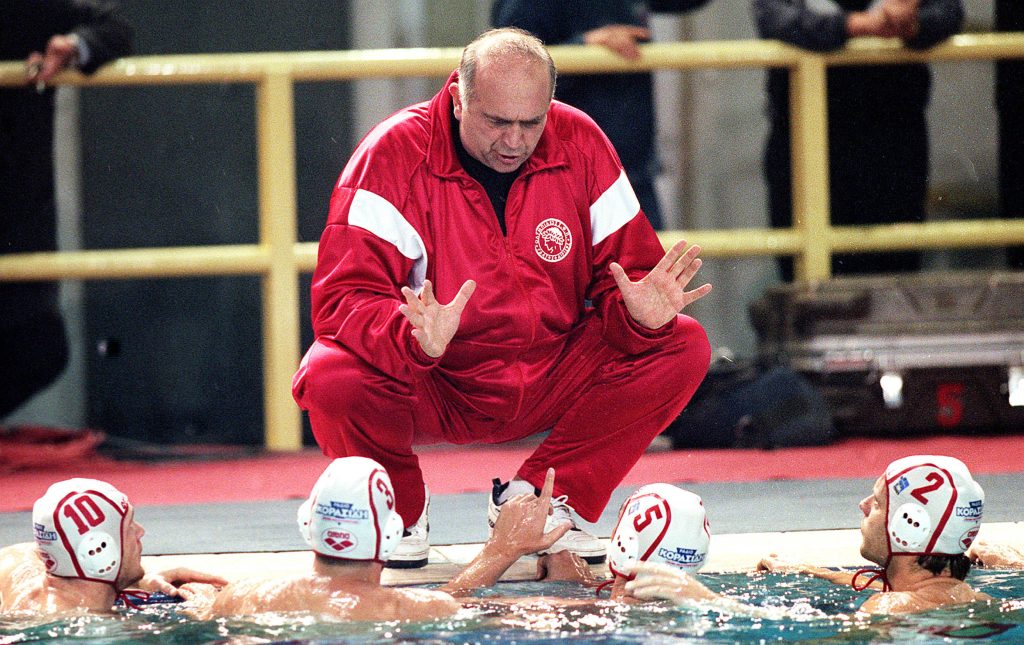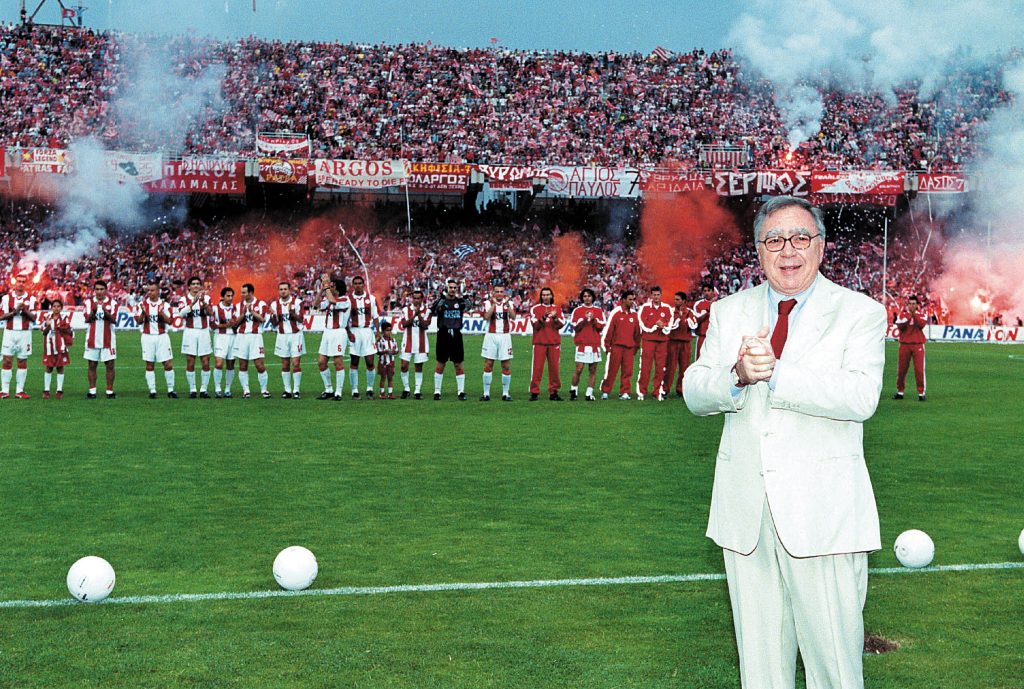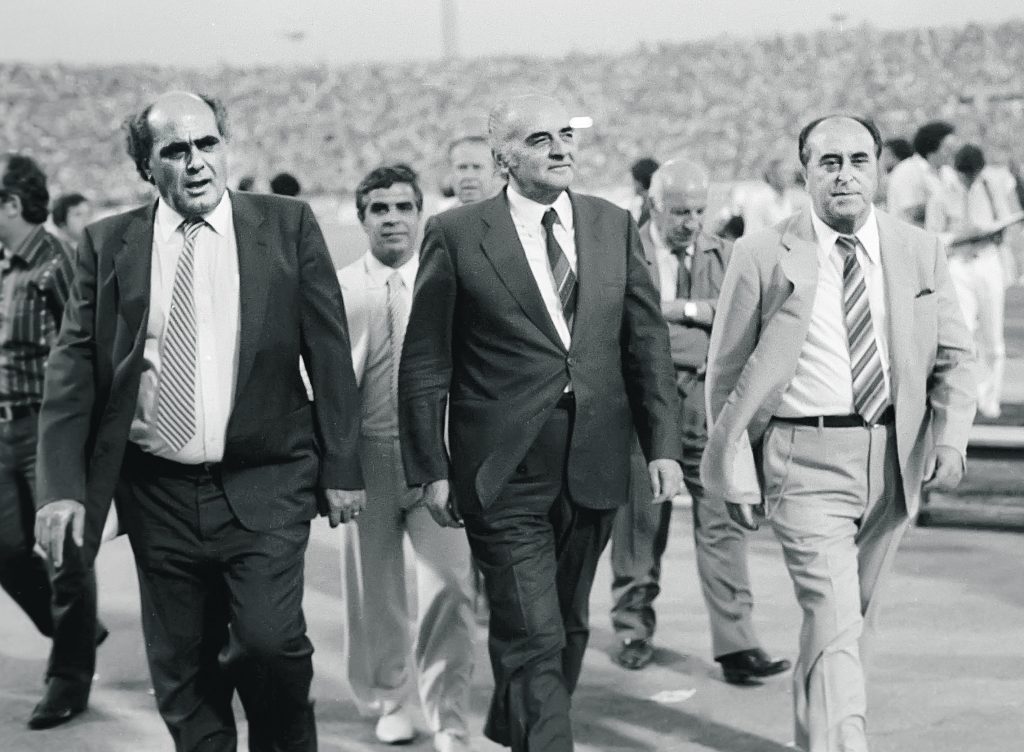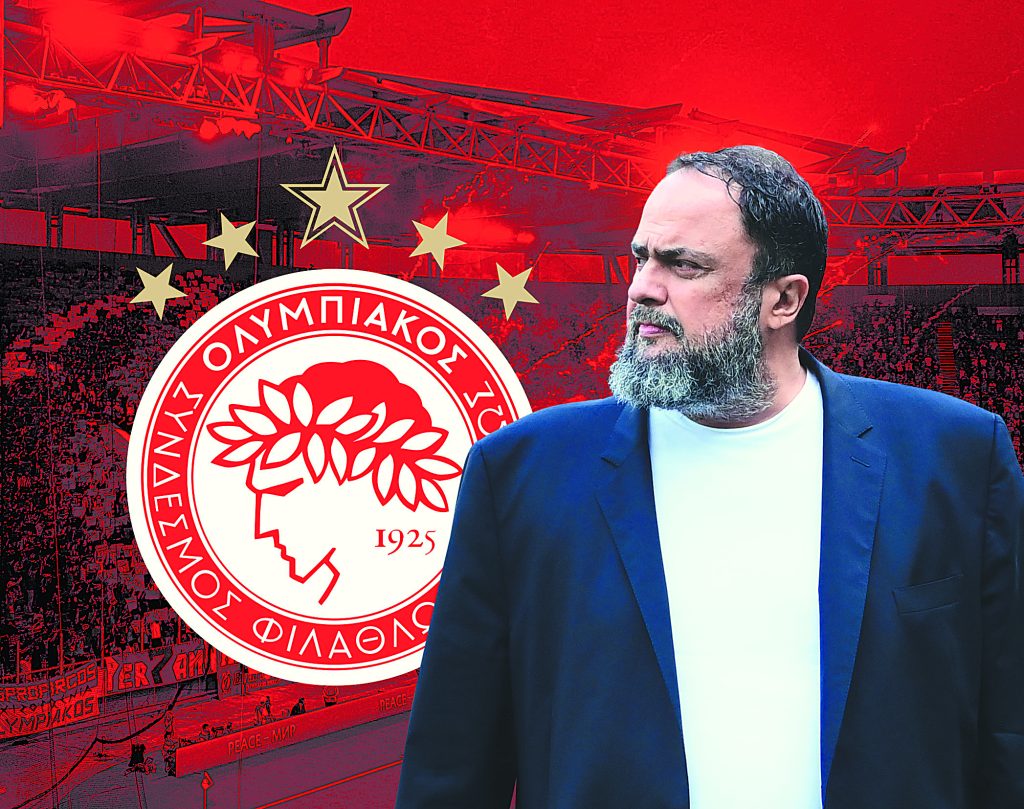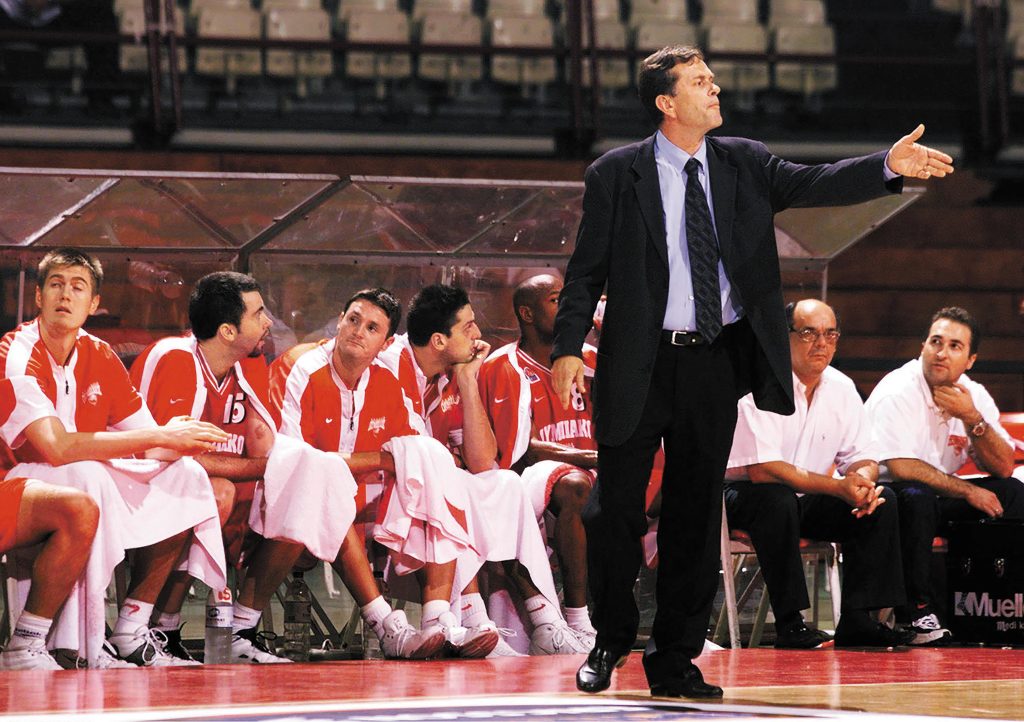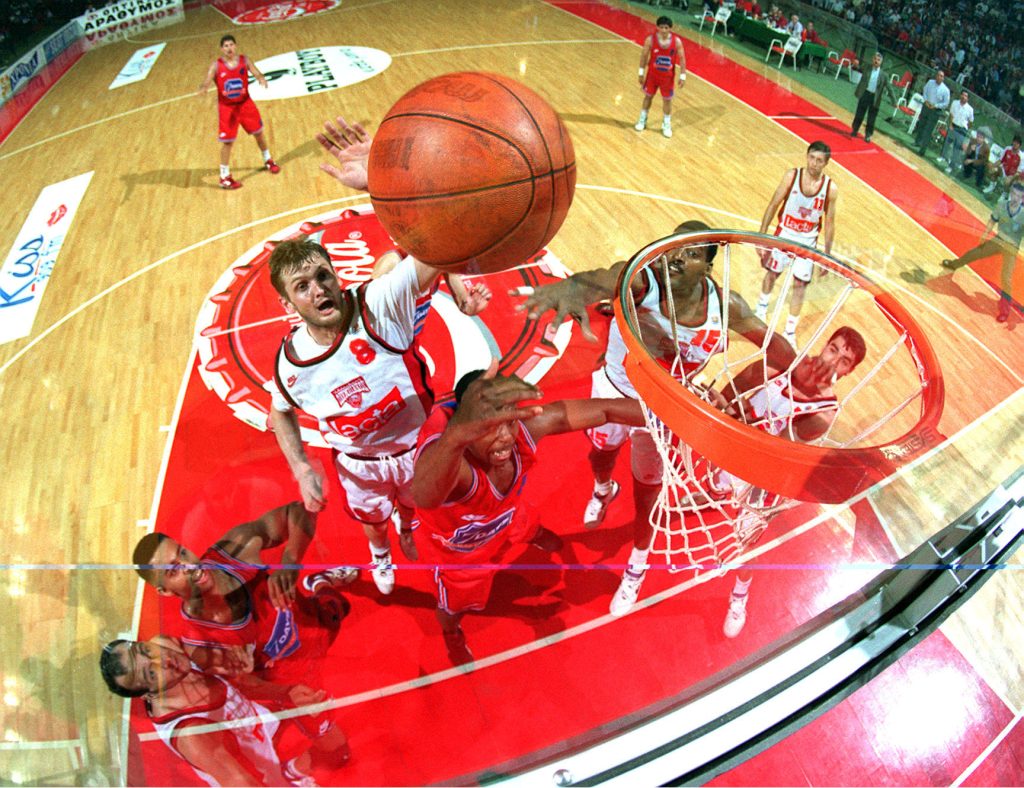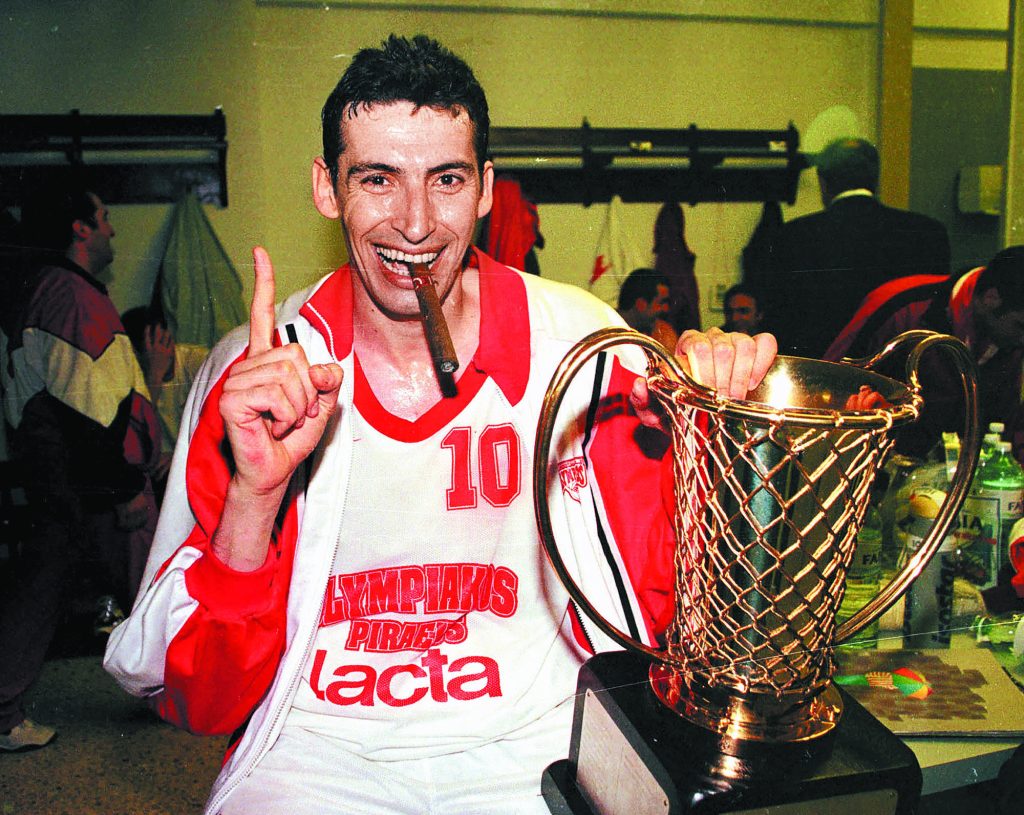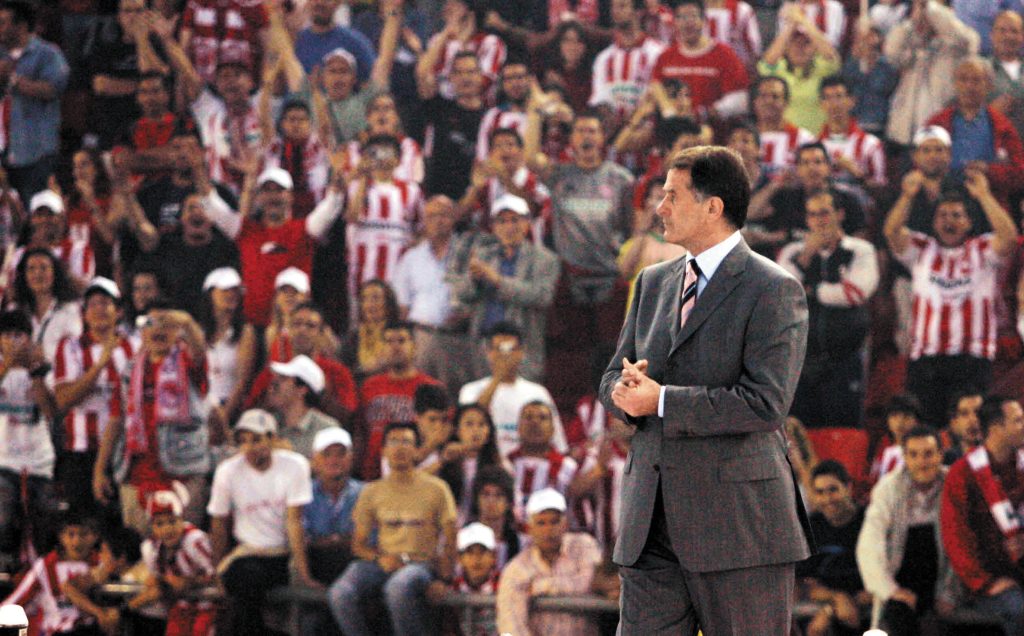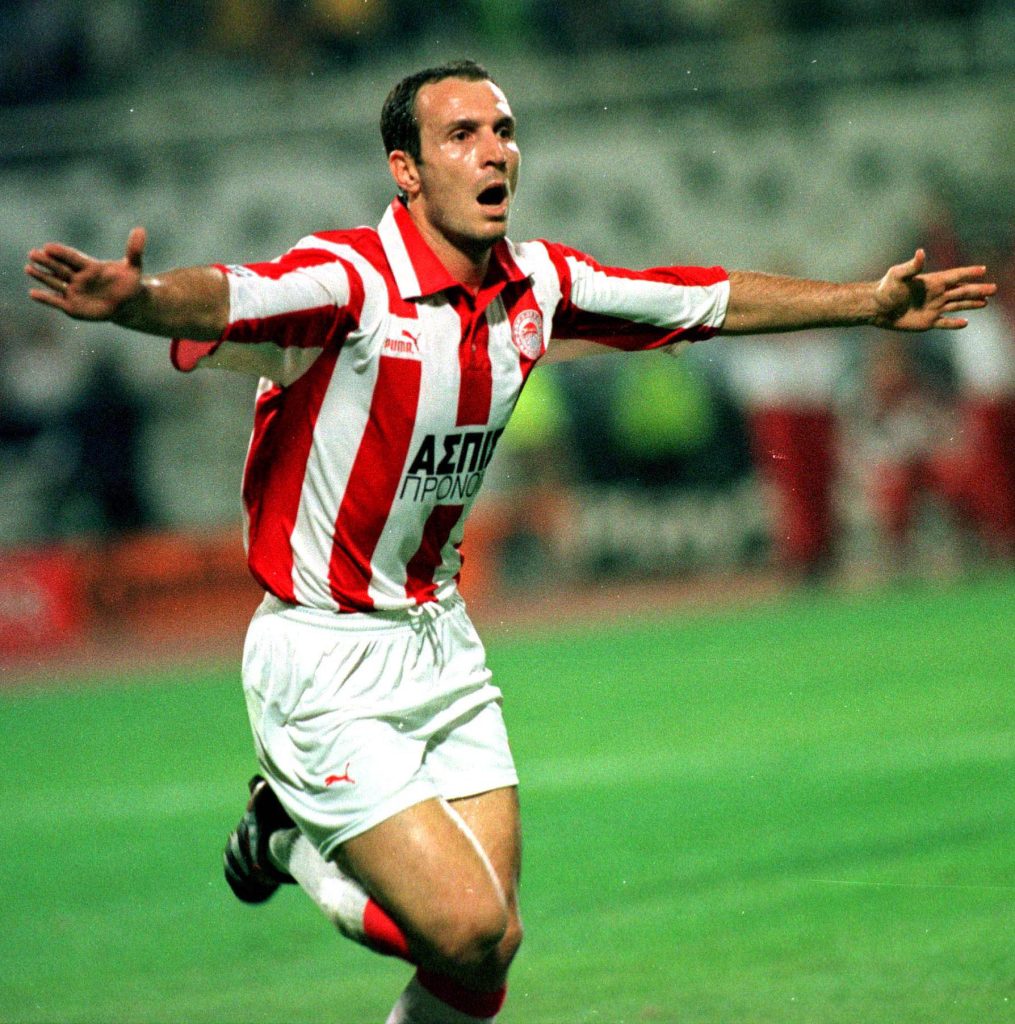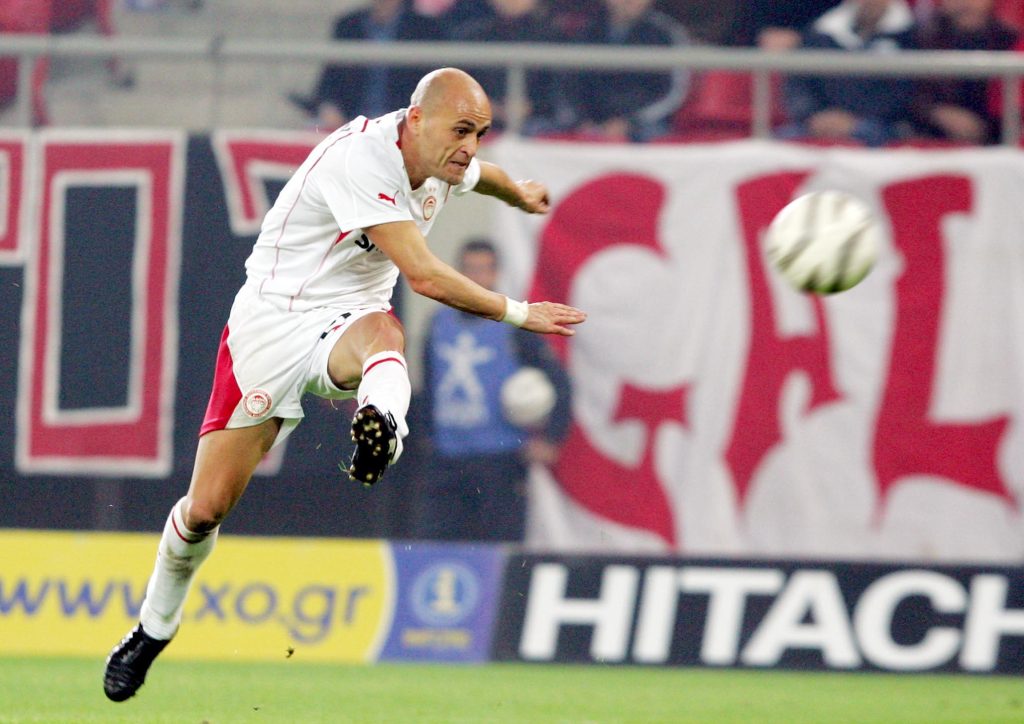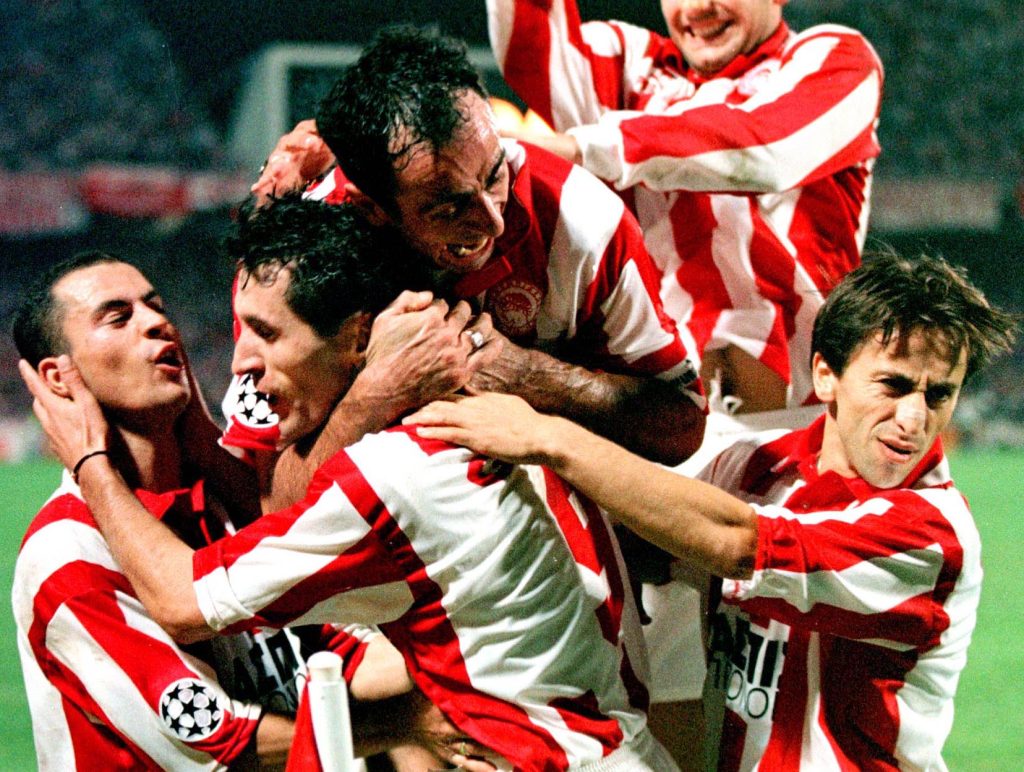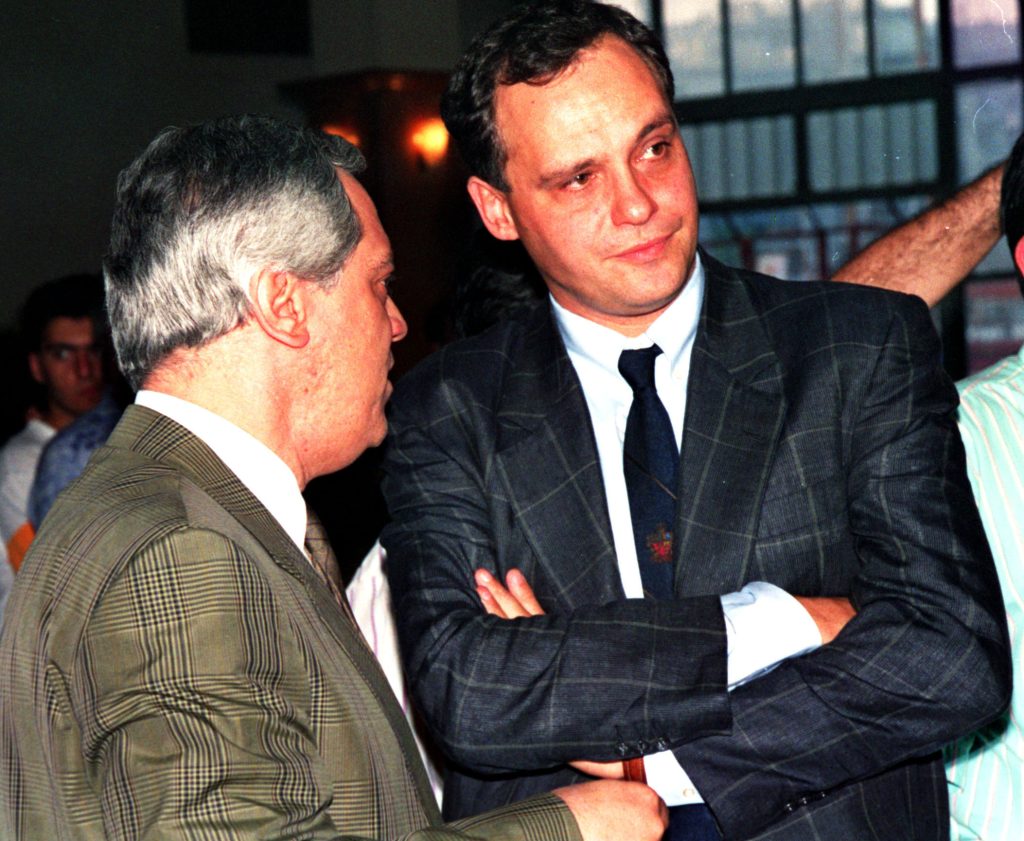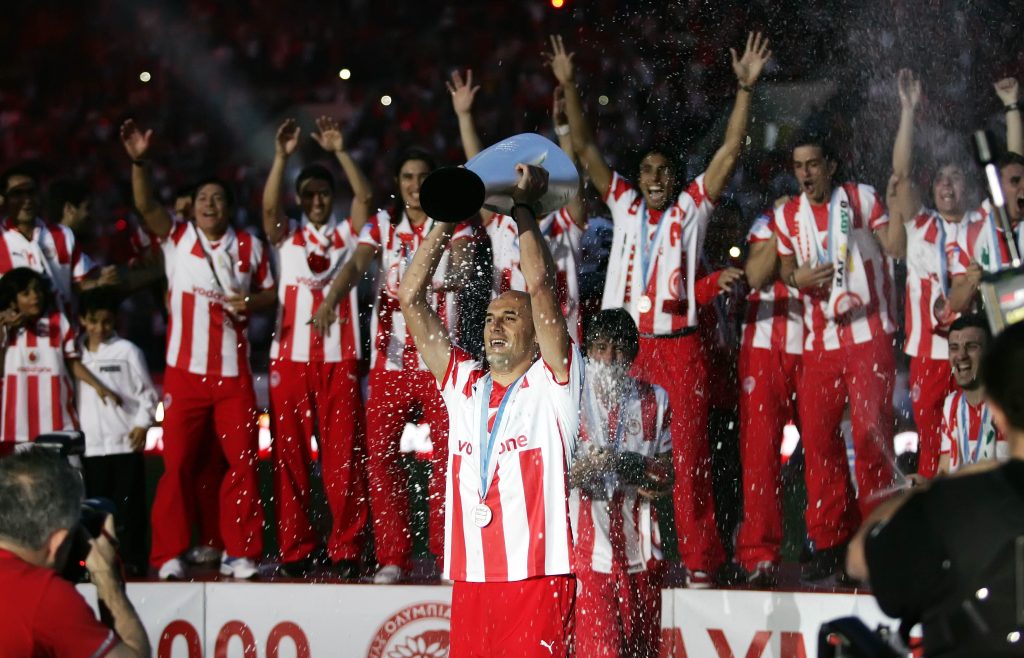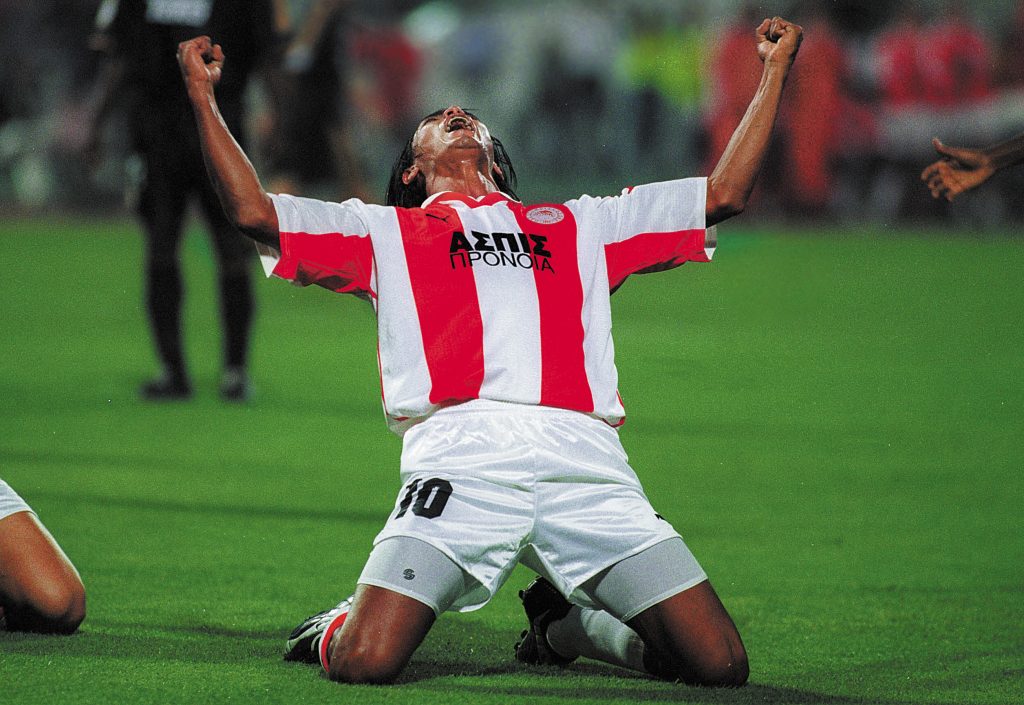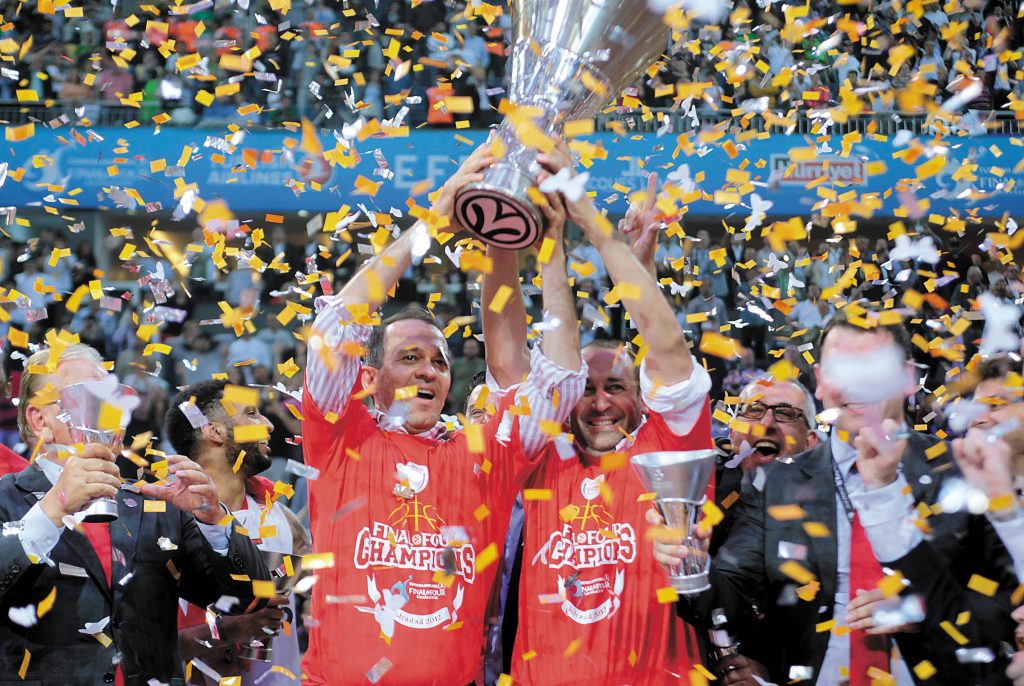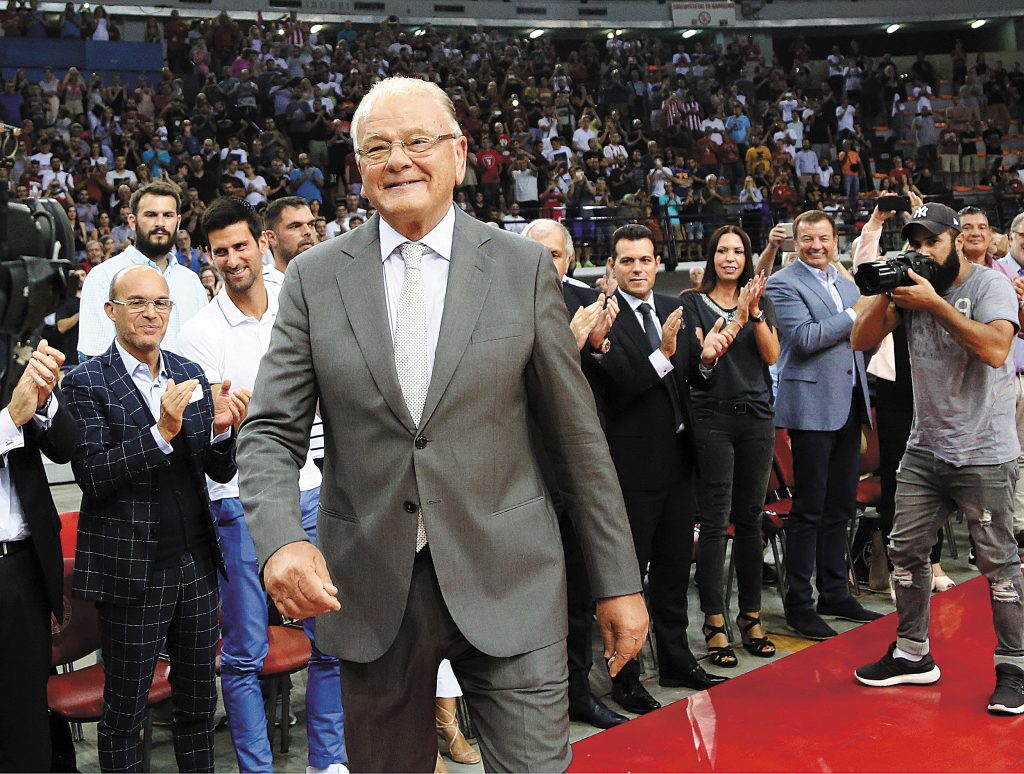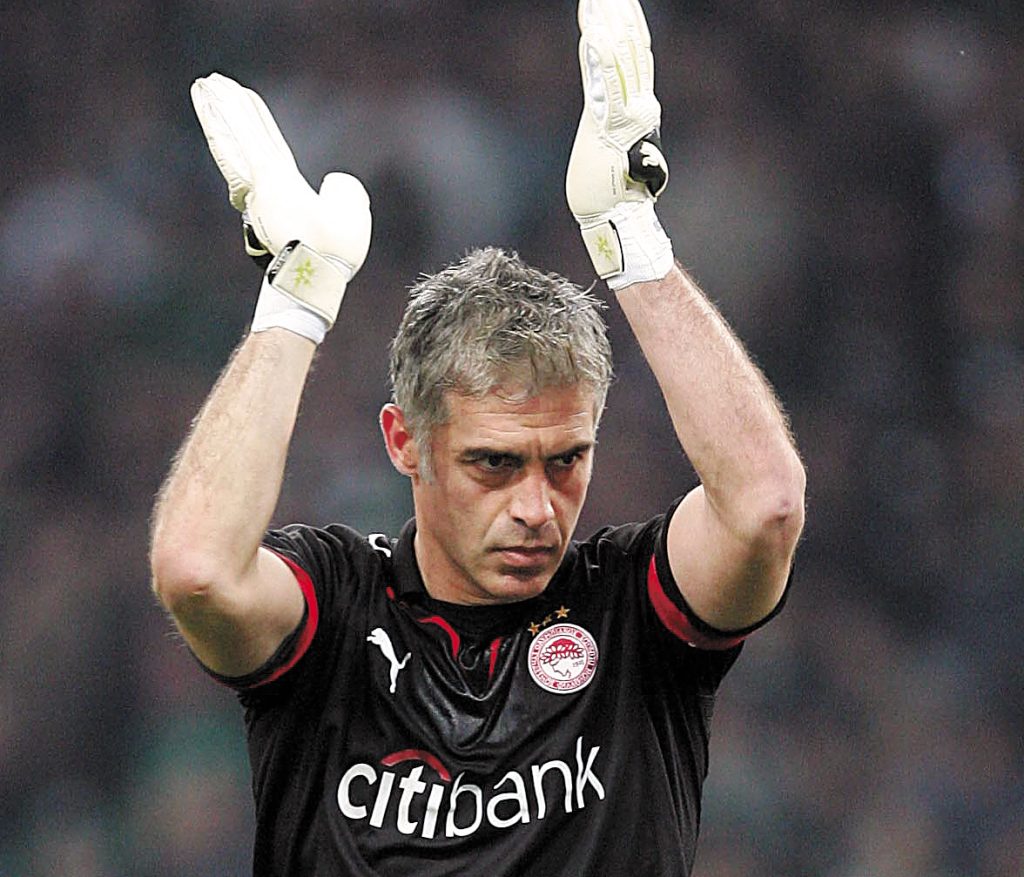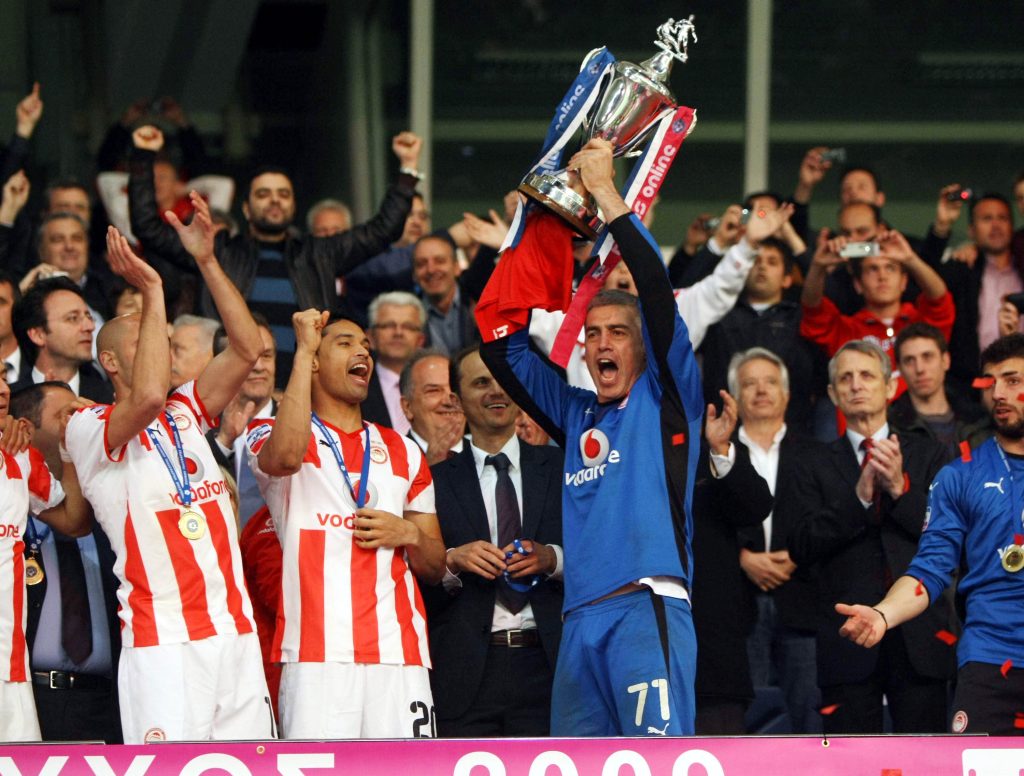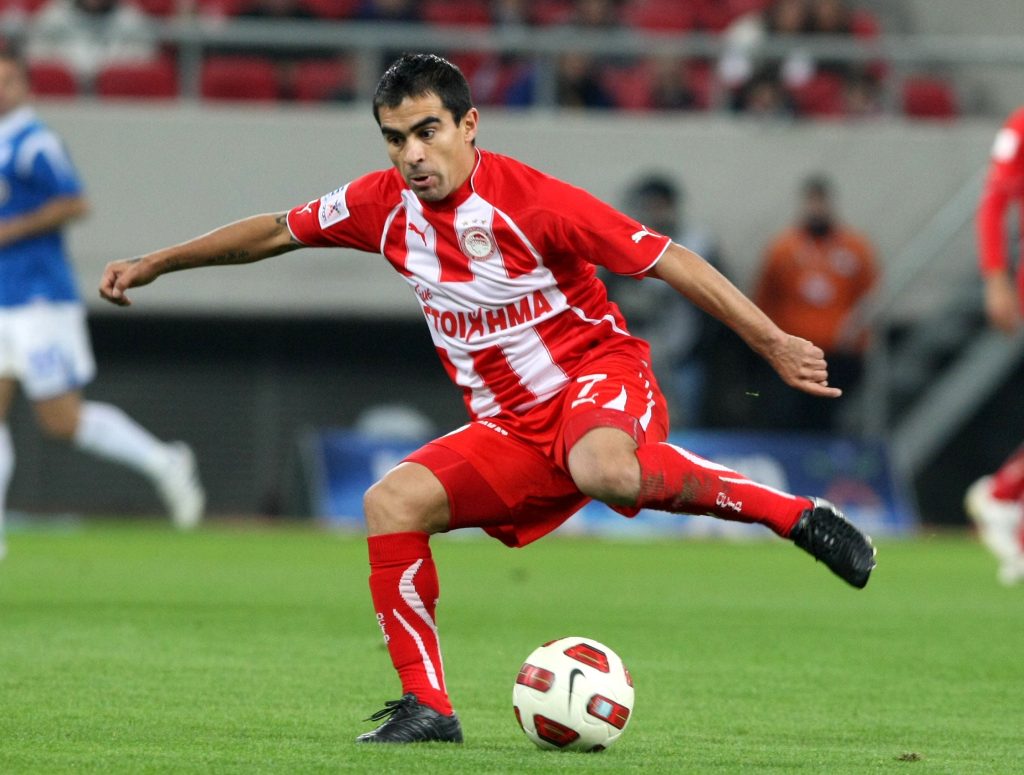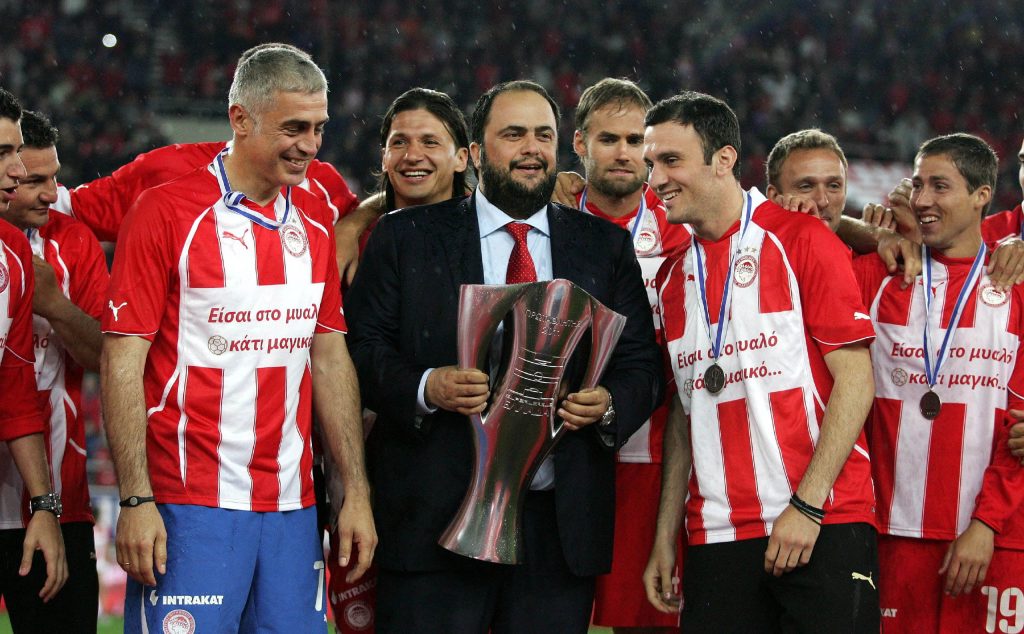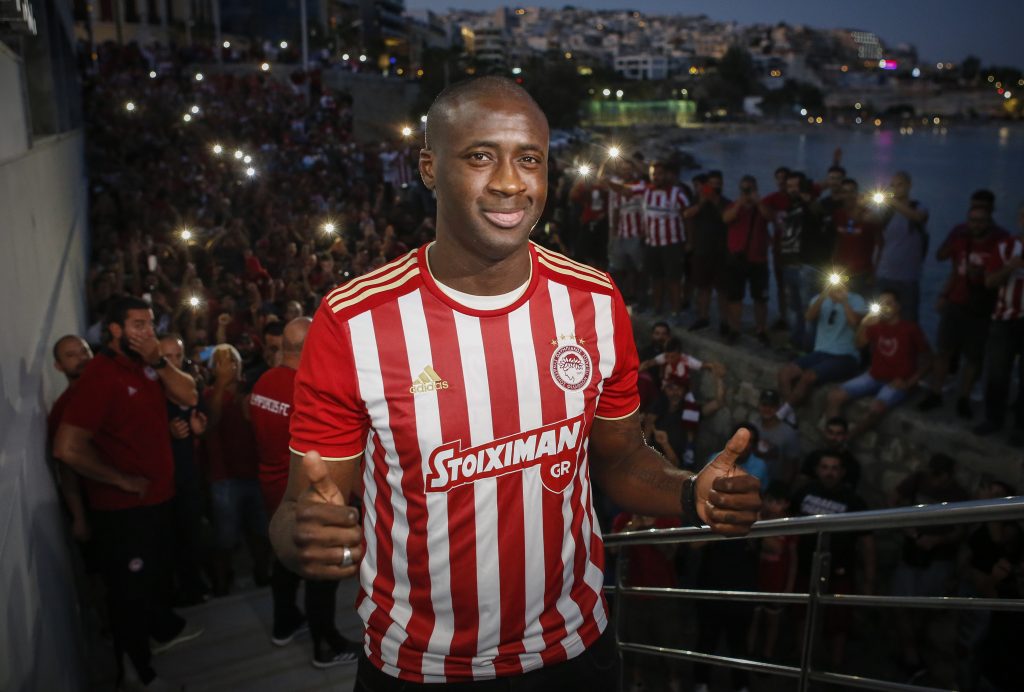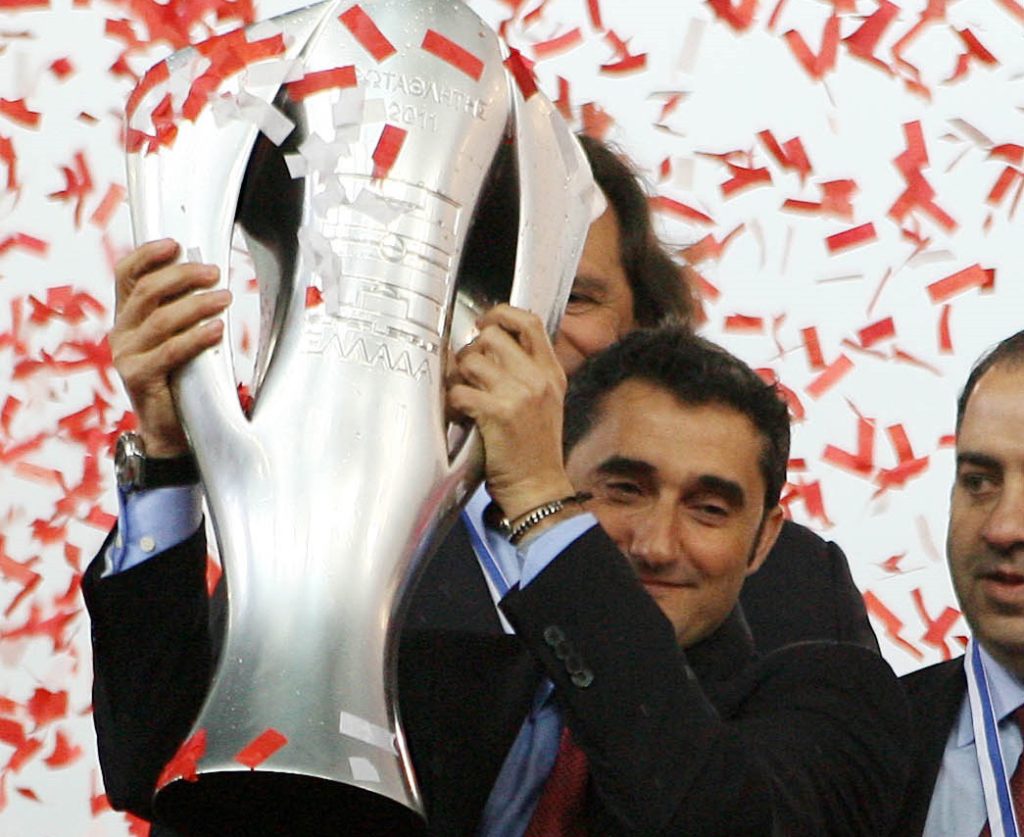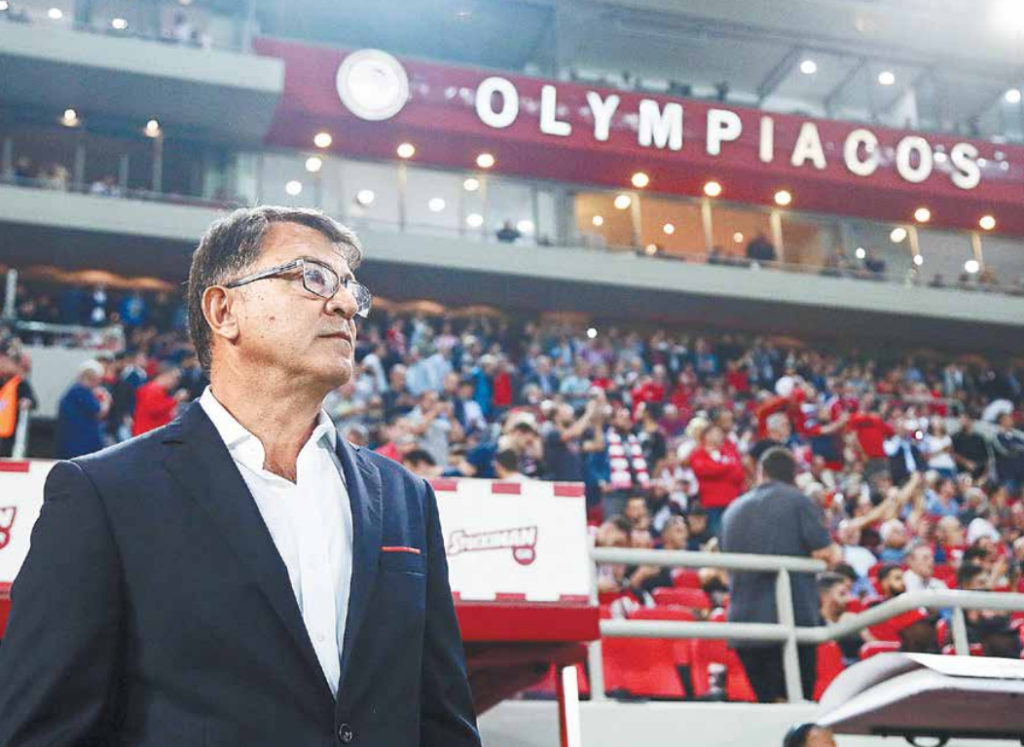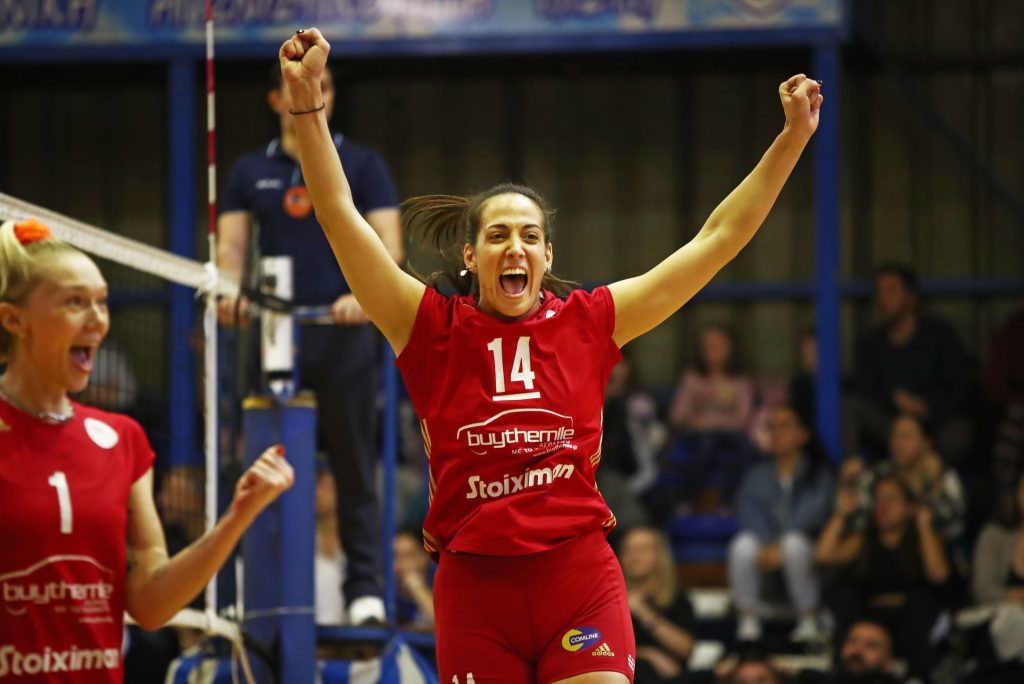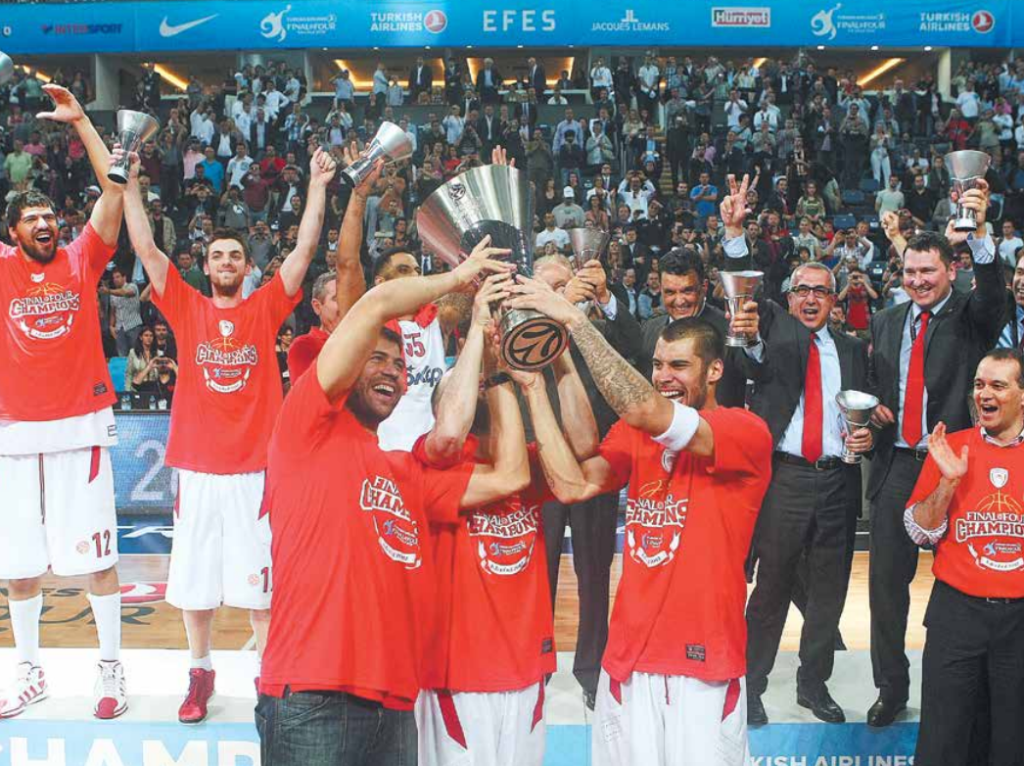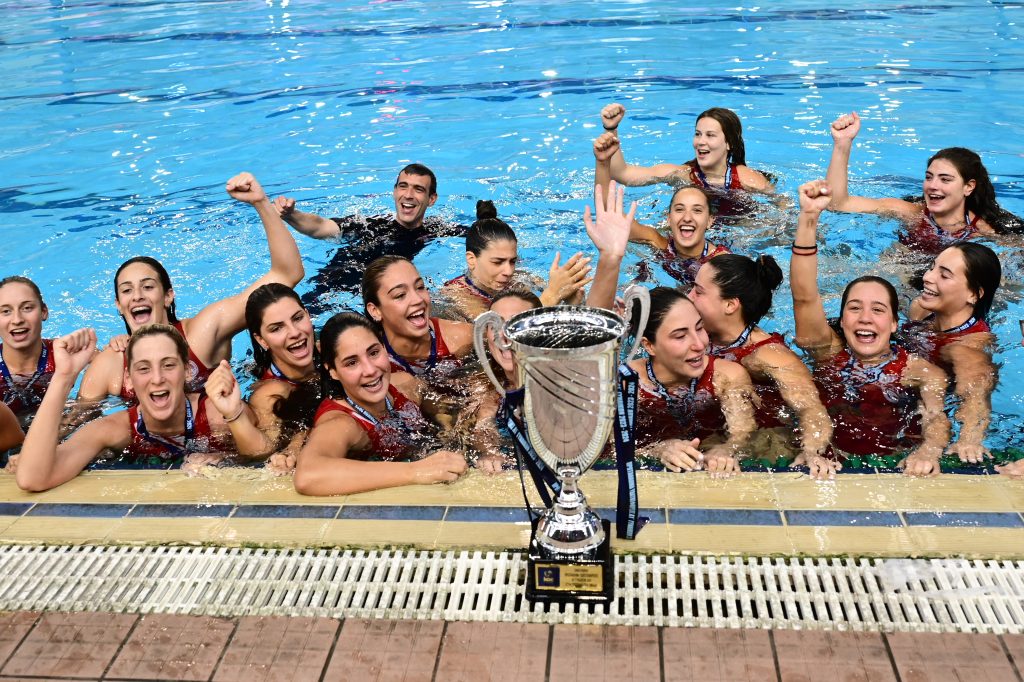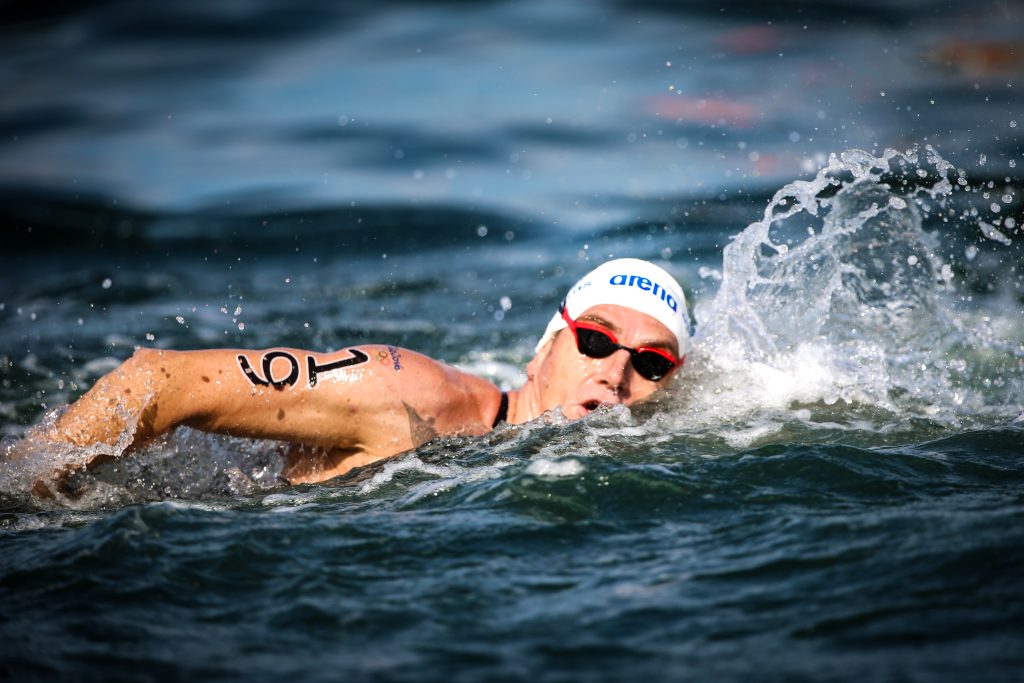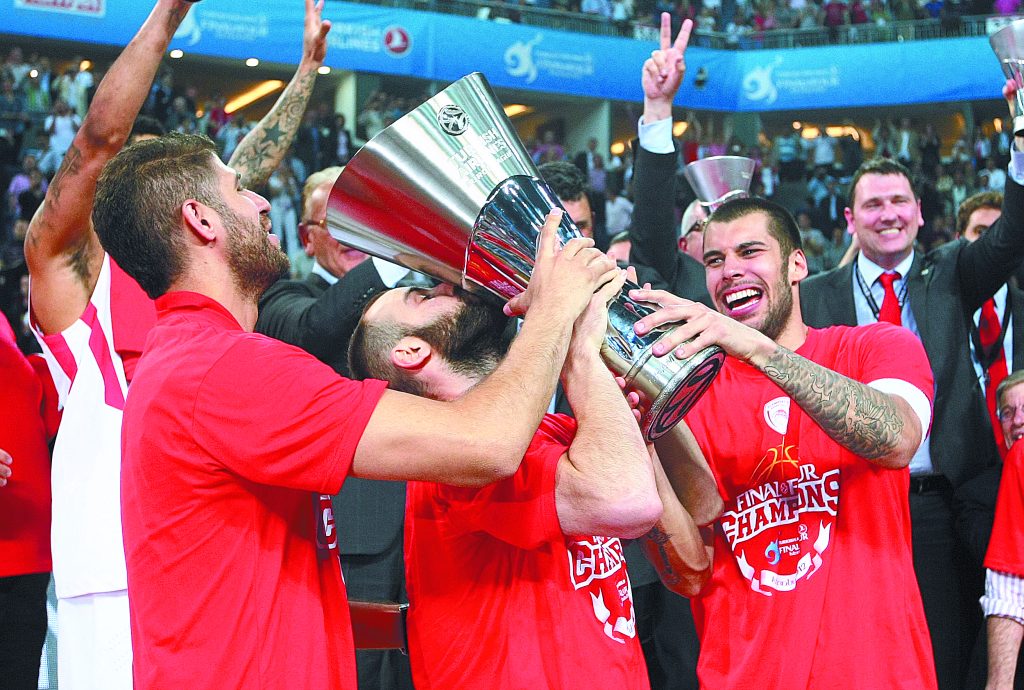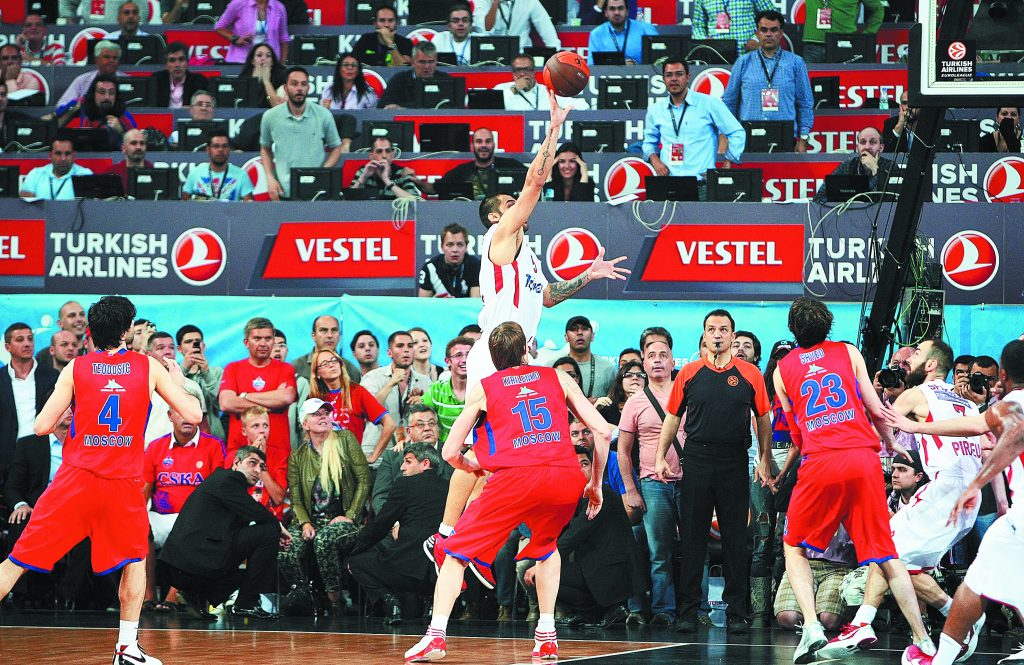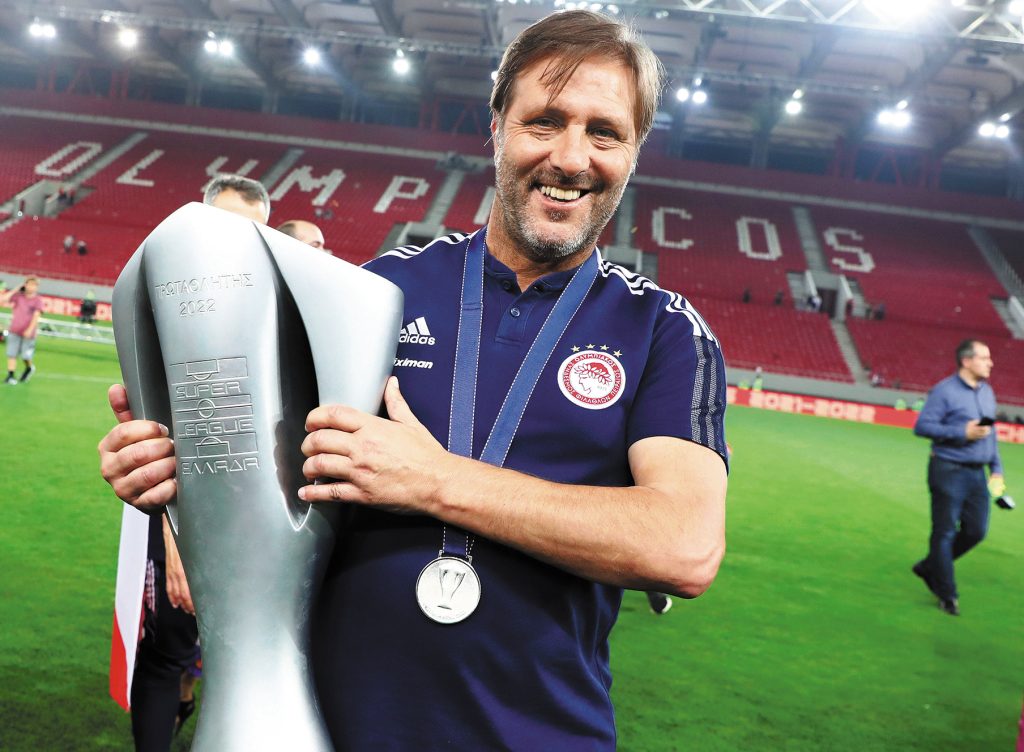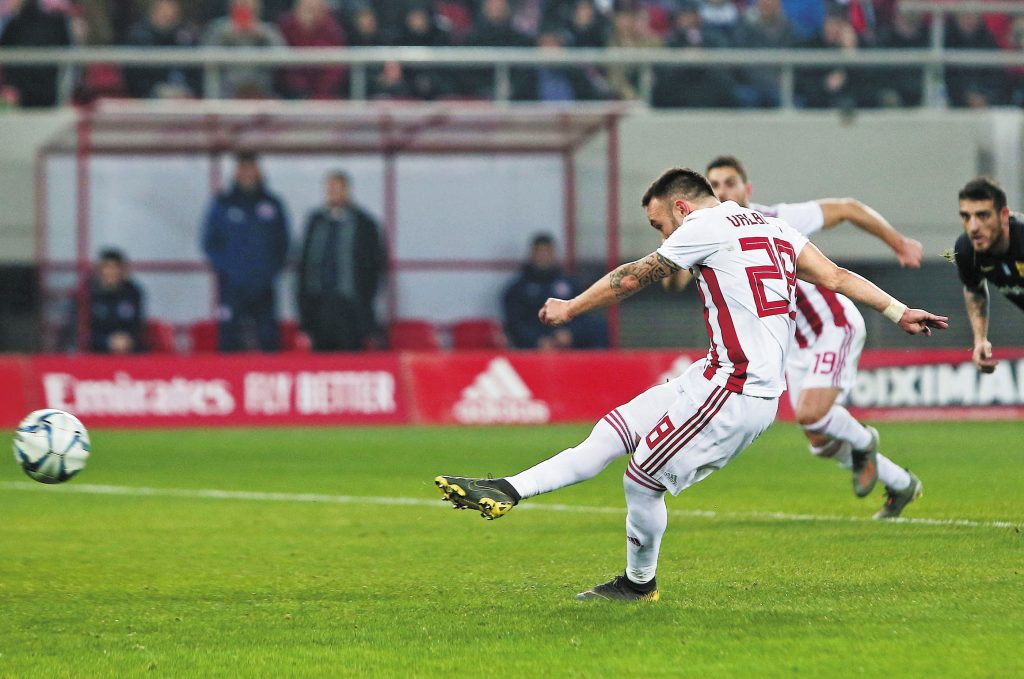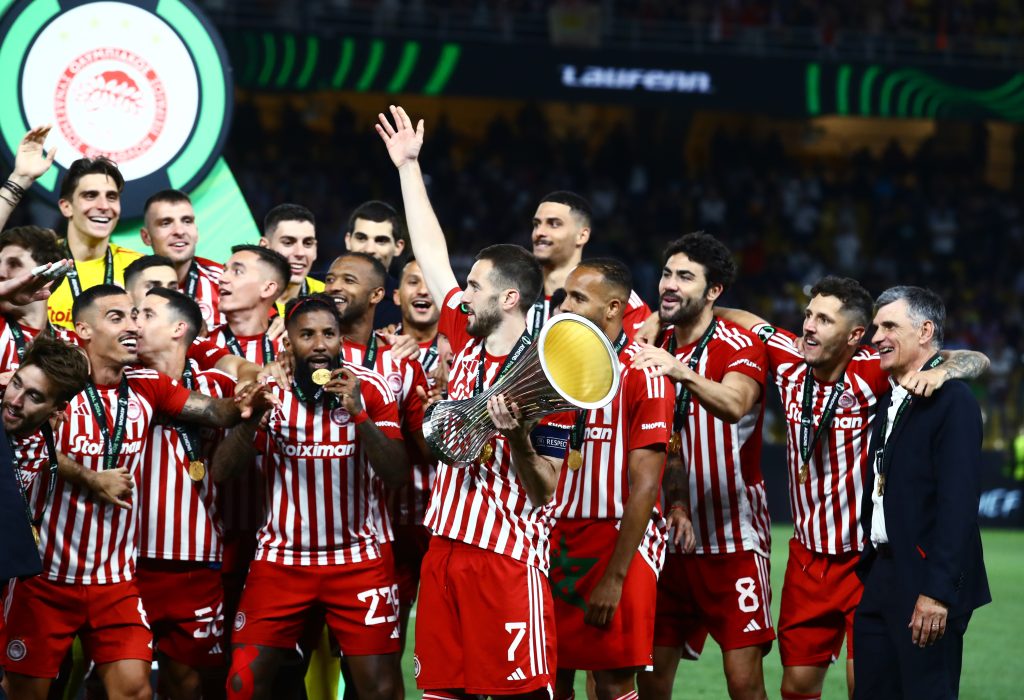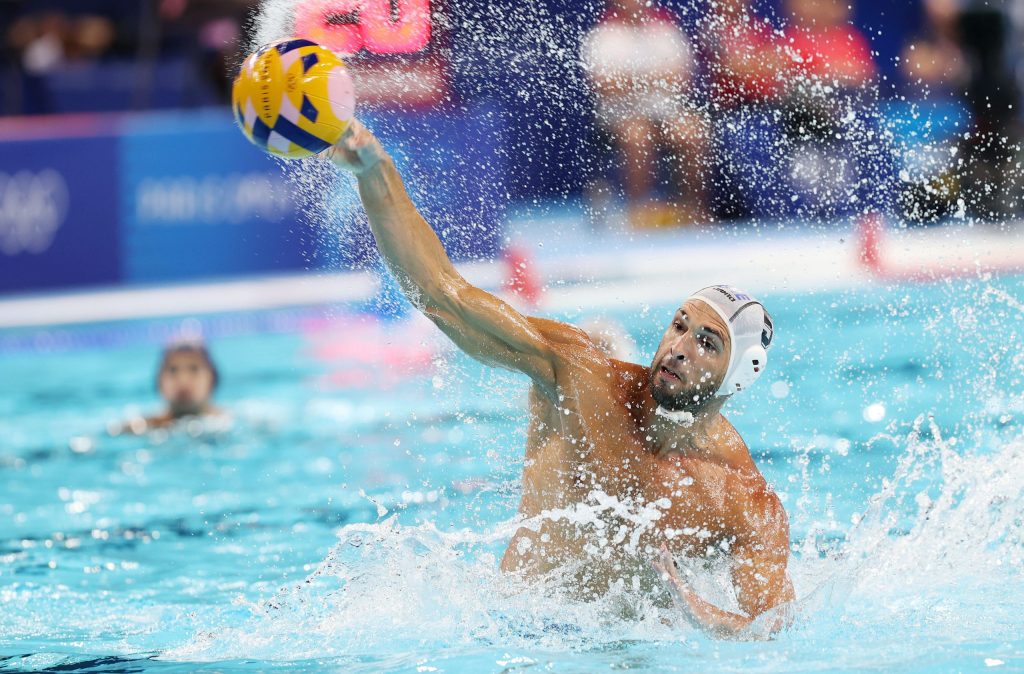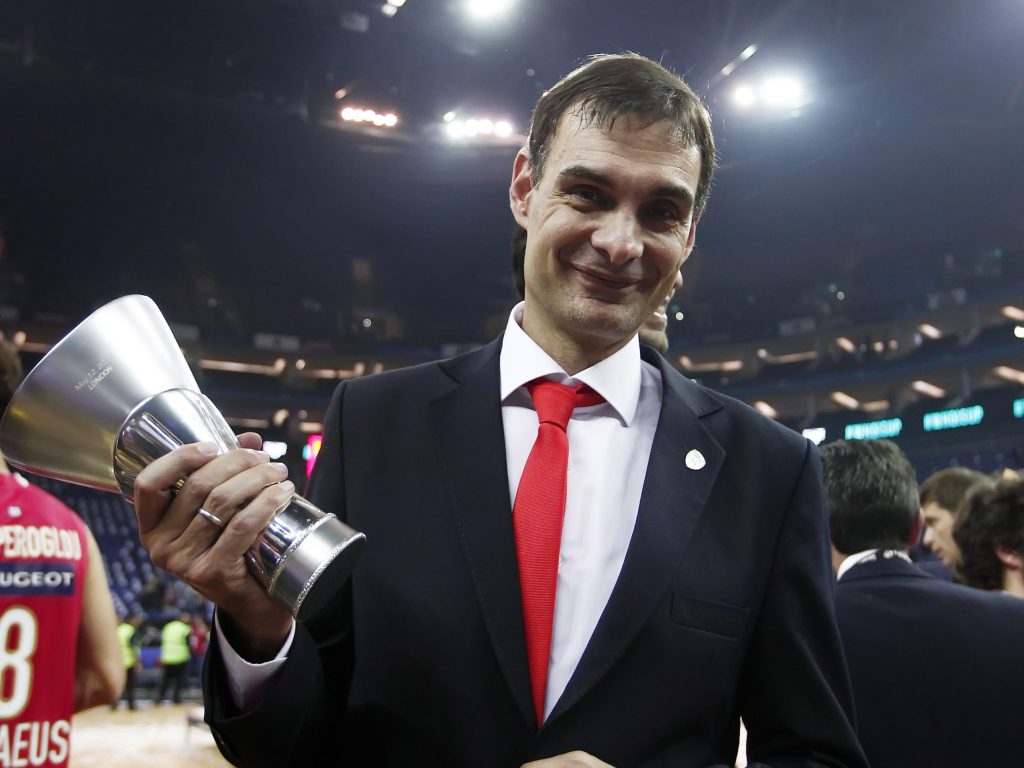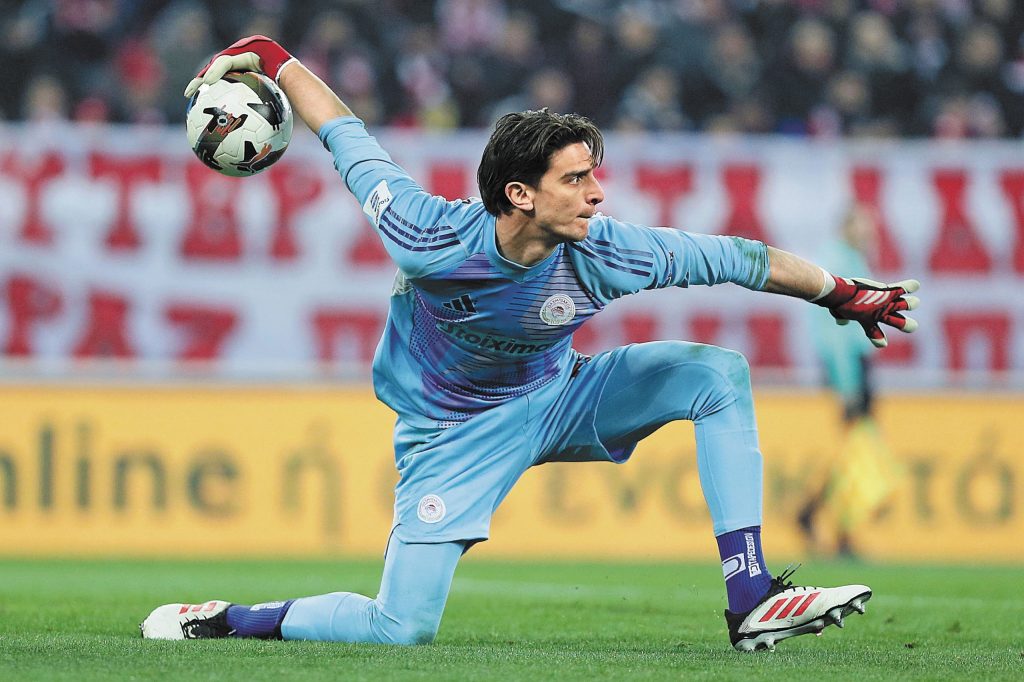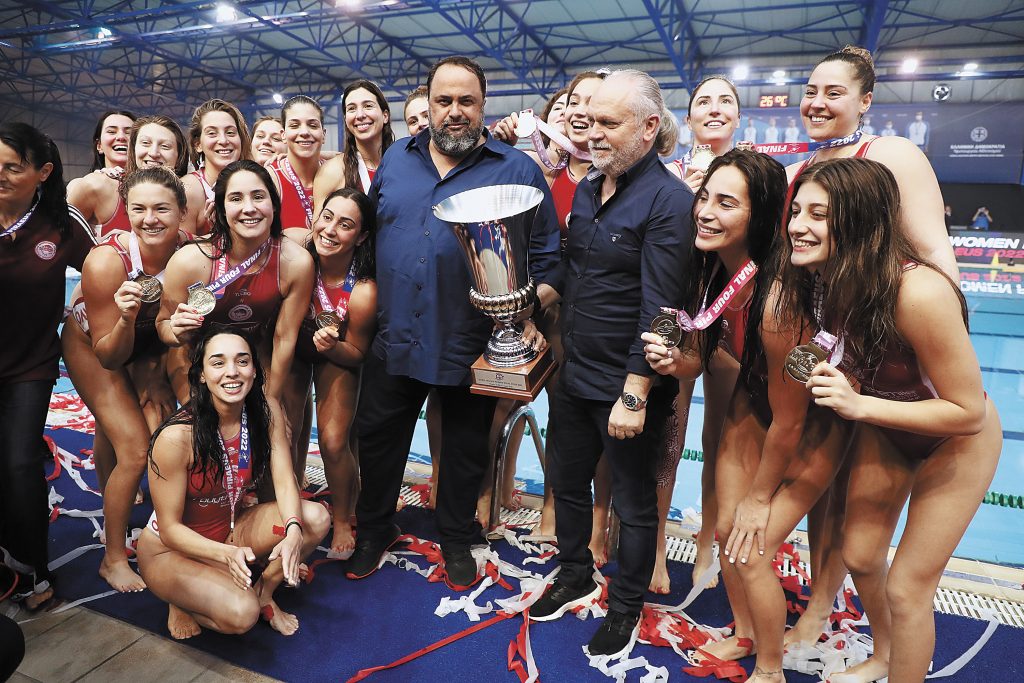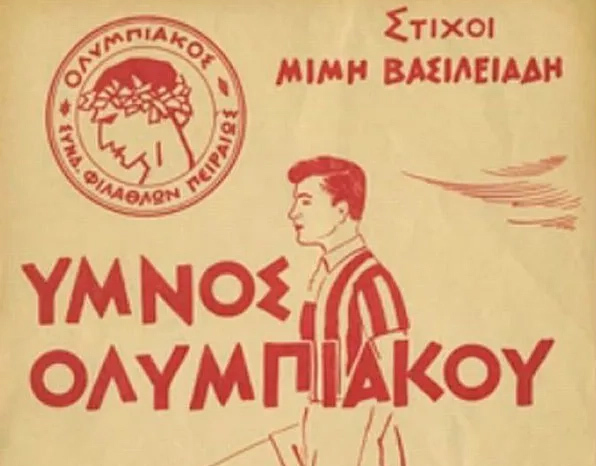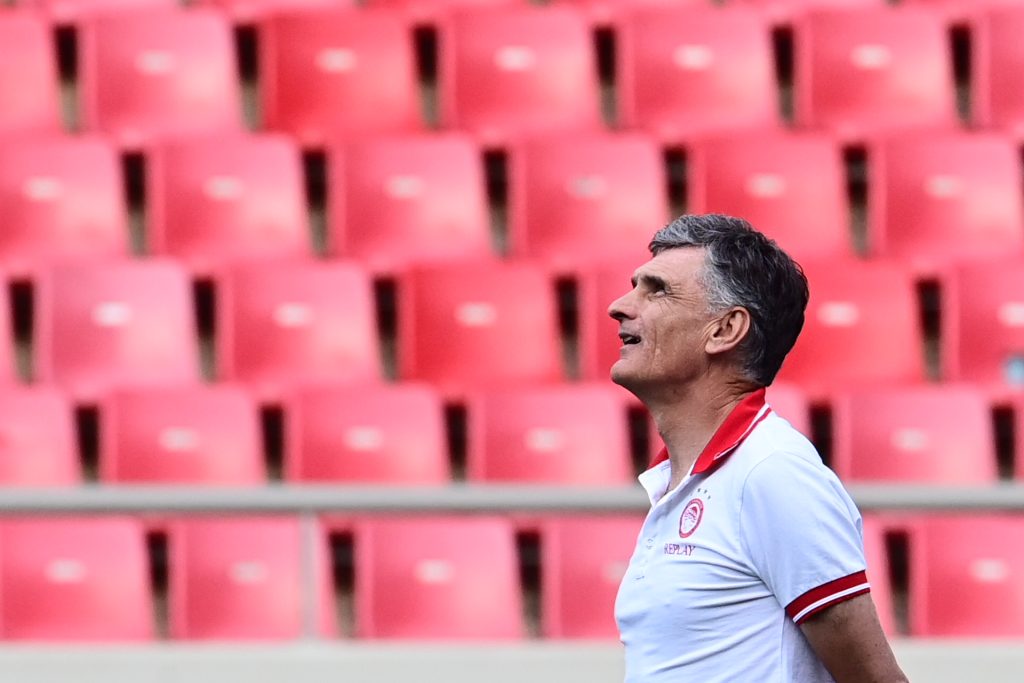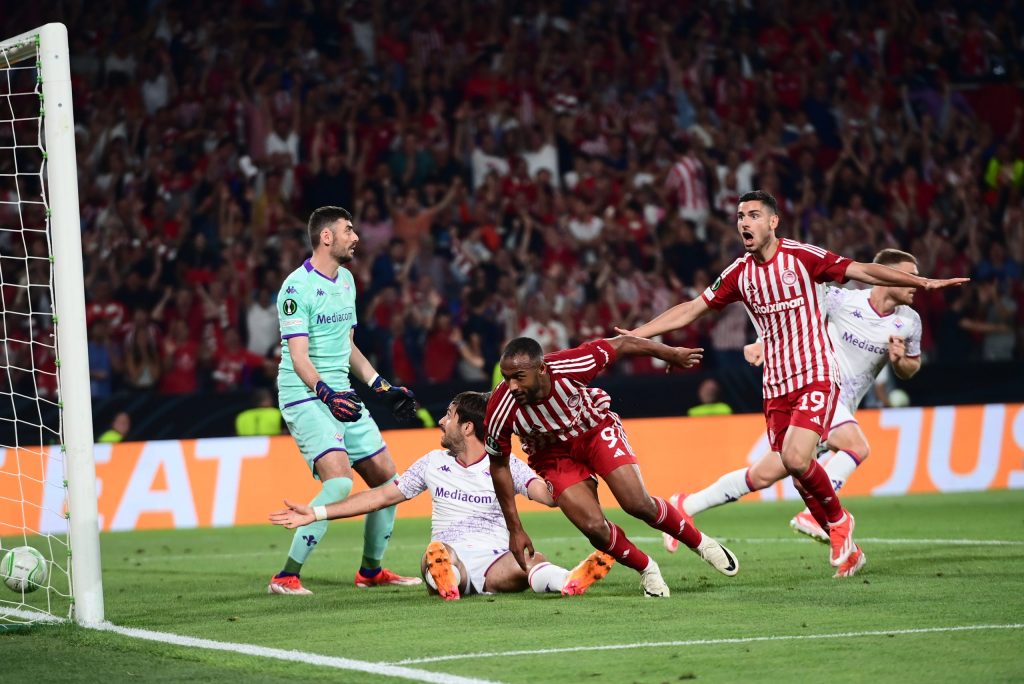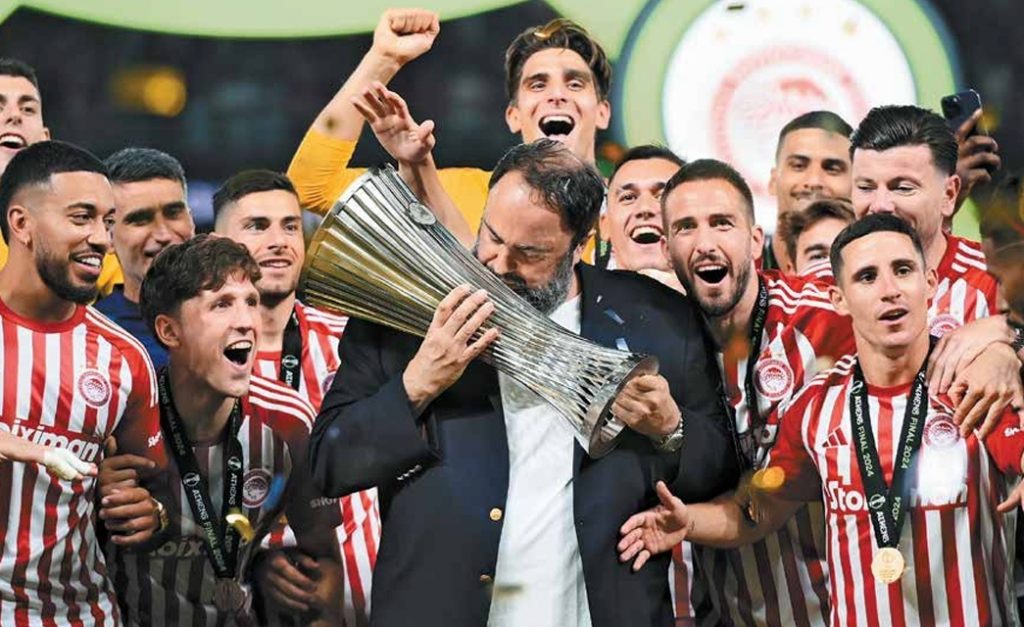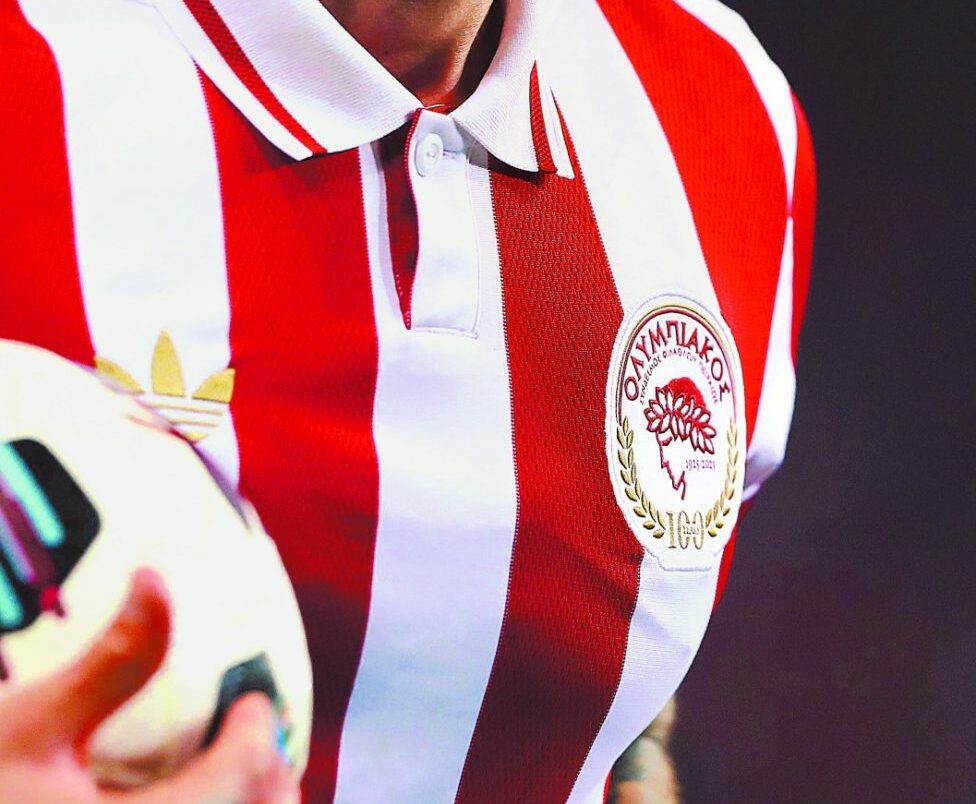There have been hundreds of players who wore the Olympiacos jersey during the 100 glorious years of its history. All of them were applauded at least once. Dozens were praised, but a few became an actual catchphrase on the lips of fans.
Fans adored and even worshipped them and never forgot them. Younger generations learned of their exploits and continued to read and hear about them – legends of the Legend. One of the catchphrases that have been passed down from generation to generation is “In there, Gioutsos!” …and destroy the opponents’ defense – which is now part of the modern vernacular.
‘In there, Gioutsos’ is the “battle cry” heard from the stands to encourage and motivate Nikos Gioutsos (April 16, 1942 – November 7, 2023), who wore and exalted the red-and-white jersey with his ‘killer instinct’ for scoring.
Gioutsos was born in April 1942 in the village of Makrochori, in Kastoria prefecture in the north of Greece, and grew up in Hungary, where he had been evacuated during the Greek Civil War, as his mother remained in Greece, while his father had died. He started playing football for Olympos, a team of Greek political refugees in the central European country, and was later acquired by the well-known Budapest club Csepel SC. During the early years of his football career, his performances had made him extremely popular in the exiled Greek community of Hungary.
From Hungary to Kallithea and the Georgios Karaiskakis Stadium, Nikos Gioutsos’ career appears like a fairy tale, full of passion and football genius.
A child of the Civil War
At the age of 22, in 1964, Olympiacos knocked on Gioutsos’ door and finally acquired, him. He played with the Piraeus Club until the summer of 1974, leaving just before the Reds traveled to West Germany for their summer training.
A clash with then Olympiacos manager Lakis Petropoulos had preceded a loss in the 1974 Greek Cup final to PAOK Thessaloniki, which saw Gioutsos leaving the hotel where the team was staying. During the 1974-75 season he played cross-town rival Ethnikos Piraeus, retiring a year later. Gioutsos scored a total of 101 goals in 319 league appearances, a performance that ranks him among the top 30 all-time top 30 scorers in Greece’s top division. He also achieved 15 caps with the national team and scored six goals.
His debut with the national team came on May 23, 1965 in an away match against the USSR for the 1966 World Cup qualifiers. He won the Greek championship with Olympiacos in 1966, 1967, 1973 and 1974, as well as the Cup in 1964, 1968, 1971 and 1973.
Veteran Olympiacos player Savvas Papazoglou stated in an interview that “in Hungary the Greeks, the political refugees, were proud of Nikos. From a young age he demonstrated that he is a great talent; at the time he came to Olympiacos, if he had gone to any other country with better stadiums, he would have been even greater. Nikos Gioutsos had brought with him an aura of European football, the Hungarian variety, which at that time was the best in the world.”
Theodorakis’ intervention
In Hungary he was known by his first name of Miklós, the Hungarian form of Nicholas, and with a last name of Gioutsov. He first played in the refugee team Olympos, which played in the newly established ethnic Greek settlement, then township of Beloiannisz.
A town official had tipped off both Olympiacos and AEK Athens’ officials over the young player’s talent, with Nikos finally winding up in the great port of Piraeus.
It was renowned composer Mikis Theodorakis, then a Parliament deputy representing the Piraeus constituency with the EDA party, who intervened to bring Gioutsos to Greece. Celebrated resistance fighter Manolis Glezos had also intervened, while the presence of Hungarian coach Nándor Cserna on Olympiacos’ bench was also a distinct advantage.
Yet his course towards Olympiacos was not an easy one. As “Gioutsov”, he couldn’t receive a visa to travel to Greece, as there was a prohibition at the time on the repatriation of political refugees from the Civil War. Instead, Olympiacos’ management was able to issue him a one-time passport, using a photograph of him published in a Hungarian newspaper.
According to later chronicles, Gioutsos was decidedly disappointed when he was given a tour of the facilities and equipment in Greece and wanted to return to Hungary, which was decidedly more advanced in football at the time.
In fact, he went to the Hungarian embassy in Athens and attempted to issue a visa for his return, to no avail.
The rest is legend: He remained with Olympiacos to write his own golden pages in the Club’s history. Gioutsos himself also credits publisher Theodoros Nikolaidis, who published the sports paper “Fos”, and Reds’ vice-president Angelos Lanaras, with intervening and shifting him towards Olympiacos instead of AEK.
“AEK first found out about me through the embassy (in Budapest), where they had one of their own people. I played for a good team in Hungary, no joke. With the intervention of Nikolaidis and Lanaras I came to Olympiacos,” he would later say.
His transfer was achieved with the intervention of renowned composer Mikis Theodorakis and WWII resistance icon Manolis Glezos, amid a period of political obstacles and historical tensions.
‘In there, Gioutsos!’
Nikos Gioutsos was the epitome of the “penetrating” forward who was not easily checked by his opponents, with defenders using all means possible to intercept and stop him.
He once noted, “I am the calmest footballer in the world. My opponents call me obscene names, but I control my temper and keep my outrage in check. However, I get bitter because I hear intolerable vulgarities launched at me, such as ‘you dirty communist, today you’ll die’, and other filth that I am ashamed to say. Many people try to irritate their opponents, but this was unprecedented with me.”
Gioutsos didn’t speak Greece when he returned to Greece in 1964, he only knew the alphabet. Using the latter he slowly tried to read newspapers.
As one of the era’s most prominent players, he was the only major star to connect two great Olympiacos teams, the 1960s-era team managed by Bukovi, and the 1970s team under legendary president Nikos Goulandris.
Gioutsos had both a “good right foot” and “left foot”, a skill he worked very hard on in practice. He also learned to play with his head up and was fast. Essentially, he was a ‘hidden’ forward, playing behind the iconic Giorgos Sideris along the axis. The key was that he had been trained and learned the secrets of the “round goddess” from his youth, and as a result he stood out. He was a “steamroller” on the pitch, leading to the slogan “in there, Gioutsos”, which, according to legend, was coined by a vendor in the stands of the old Georgios Karaiskakis Stadium – another Nikos.

He celebrated many a goal for Olympiacos. Nikos Gioutsos brought to Greece the aura of Hungarian football, which at the time was considered as the finest in the world.
Nikos Gioutsos played his first official game in red-and-white jersey against Panathinaikos on January 10, 1965, a 1-1 draw. A year and a half later, with Hungarian coach Marton Bukovi on the bench, Olympiacos won the championship after seven years, ending Panathinaikos’ dominance, with Gioutsos scoring the winning goal in injury time against Panserraikos (2-1).
He was also the protagonist of the first major international success of Olympiacos in 1972, as he scored two out of the three goals in the historic victories over Cagliari (2-1 and 0-1) for the UEFA Cup. The Sardinian side included internationals such Gigi Riva, Angelo Domenghini, Pierluigi Cera, Mario Maraschi, Nene and Ricky Albertosi, who had played in the 1970 World Cup final.
As the great Ferenc Puskas had declared at the time, while coaching Panathinaikos Athens, “Gioutsos and Domazos are the best Greek footballers”.
The impact left by Nikos Gioutsos on the red-and-white club is immense, and he is rightly counted among the greats of Olympiacos’ greats.
